
Past Graduate Justice Fellows
Learn more about our previous cohorts of Graduate Justice Fellows below.

2024–25 Graduate Justice Fellows
In 2024–25, we welcomed our third cohort of fellows that represented four colleges, two schools, and six departments around the University. The fellowship is designed to create an interdisciplinary community of graduate students committed to scholarship that engages questions of justice. The aim is to introduce young scholars from various disciplines to questions of justice in the hope that they make those a regular part of their scholarship and teaching going forward.
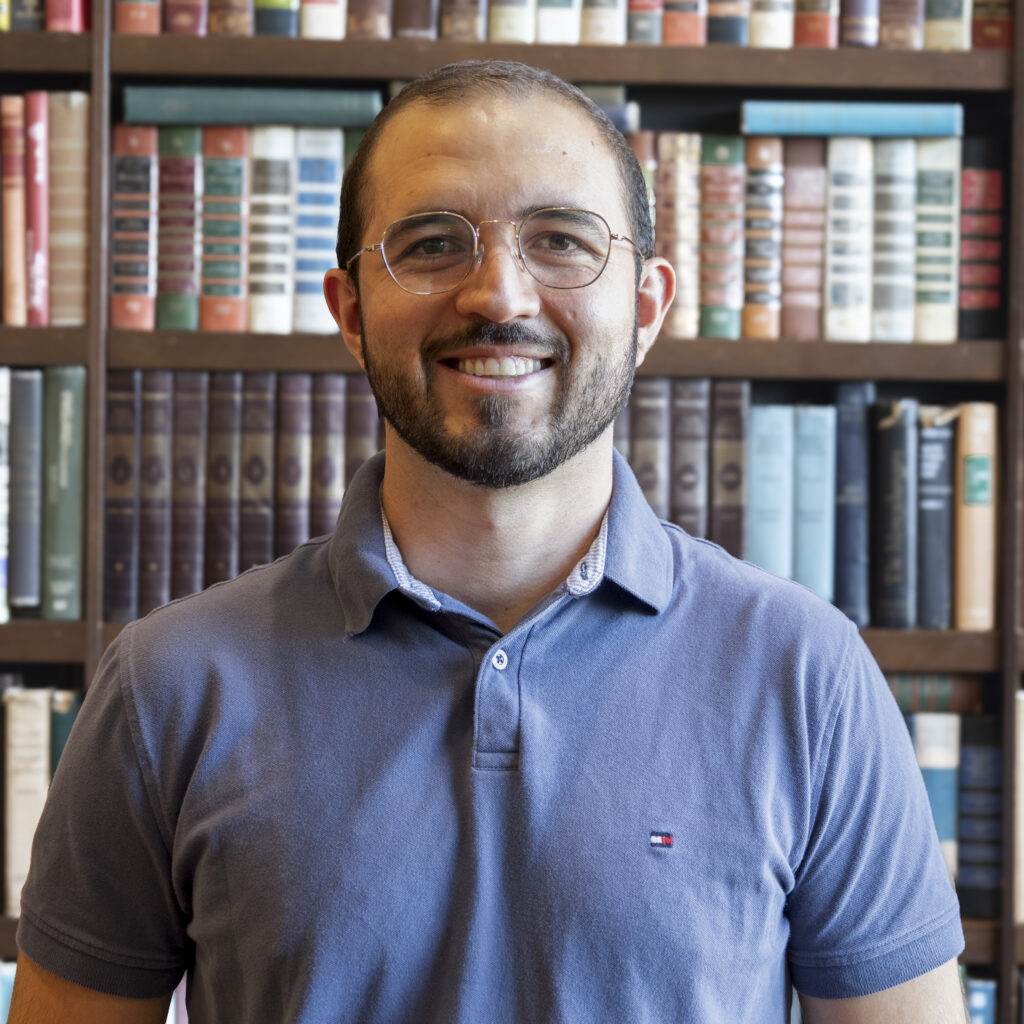
Andrei Badilla Aguilar
Andrei (he/him) is an engineer and a microbiologist by training from Costa Rica. He worked at the Costa Rican Water and Sewage Authority, overseeing water quality on beaches, investigating waterborne outbreaks, and tracking COVID-19 through wastewater. He is now pursuing a PhD in Environmental Engineering at Notre Dame, focusing on microbiology, the environment, and public health.
Research
Andrei conducts research at the Bibby Lab, investigating the spread of Antimicrobial Resistance (AMR) in flowing waters. In 2019, over 1.2 million people succumbed to infections caused by drug-resistant bacteria. However, AMR not only impacts human health but also affects veterinary settings and the environment. Farm animal manure, which is commonly used as fertilizer, is widely recognized as a source of resistance to the nearby environments. This practice particularly contributes to the spread of antibiotic-resistant bacteria to flowing waters through runoff or direct pollution. Andrei uses molecular analyses and modeling techniques to study how manure-borne genes associated with resistance in bacteria are transported in flowing waters. Understanding the fate and transport will alleviate the burden of antibiotic resistance and ensure a cleaner environment for everyone.
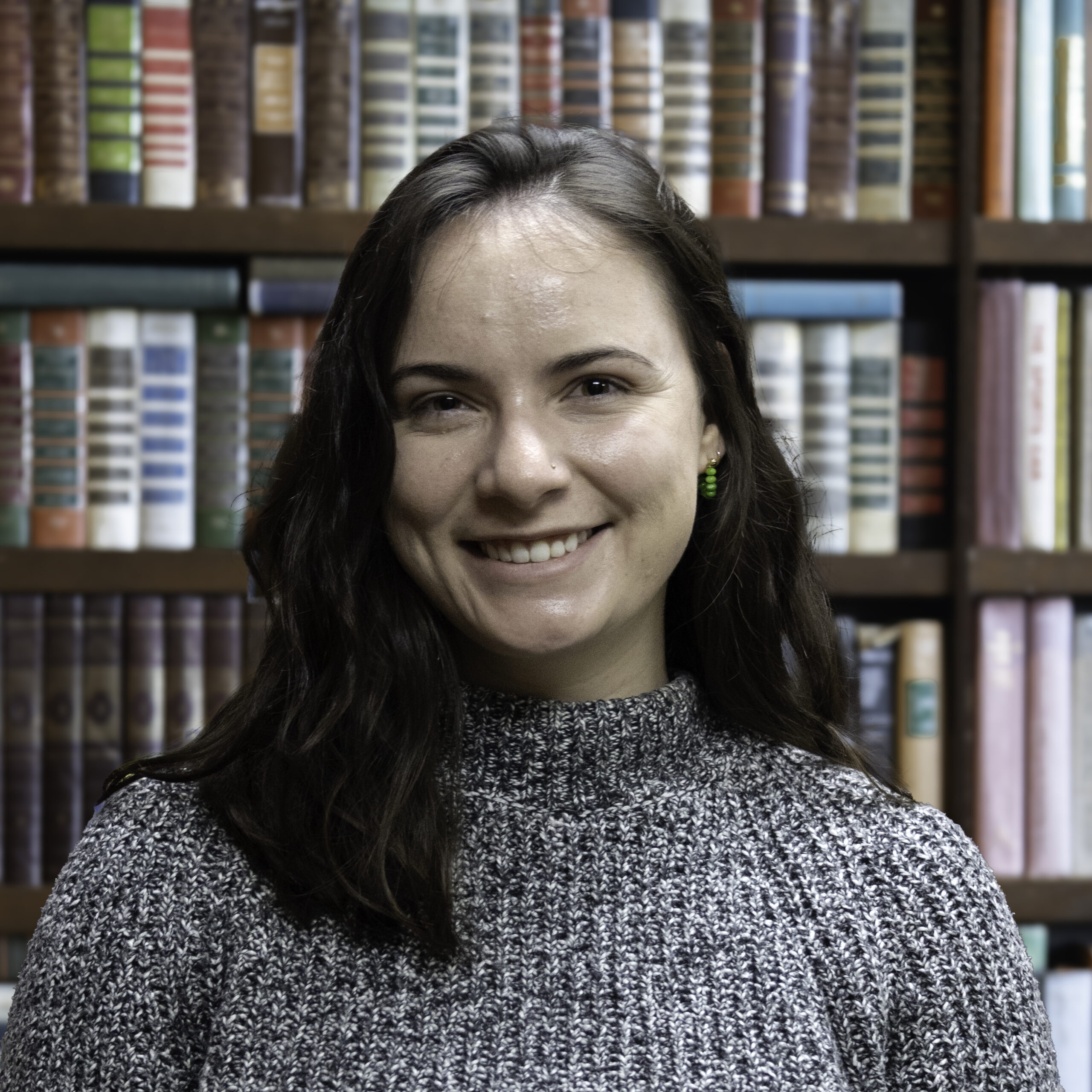
Clare Bath
Clare is second-year doctoral student in the Sociology Department. She holds a BA in Political Science and History from Saint Mary’s University of Minnesota (2021) and a MA in Peace and Justice from the University of San Diego (2023). Clare compares tactics used by civil society organizations to affect change in unrecognized countries, also called de facto states. She is especially interested in how institutions challenge, maintain, or overcome national, geopolitical, or international hegemonies.
Research
Numerous countries in the world today, such as Somaliland, Kurdistan, and Taiwan, lack international recognition. Their governments operate with a high degree of autonomy; their territories have been stabilized for many years; and each possesses a strong national identity. However, the refusal of most international organizations (such as the UN) and powerful states (such as the US) to recognize these states constrains the capacity of their governments to participate fully in international governance. Yet, this phenomenon not only impacts the way that such governments operate, but also their civil societies. Clare traveled to Hargeisa, Somaliland, to conduct interviews and participatory ethnography to answer this question: How do NGOs adapt to, and resist, the constraints placed on development resulting from their host country’s unrecognized status?
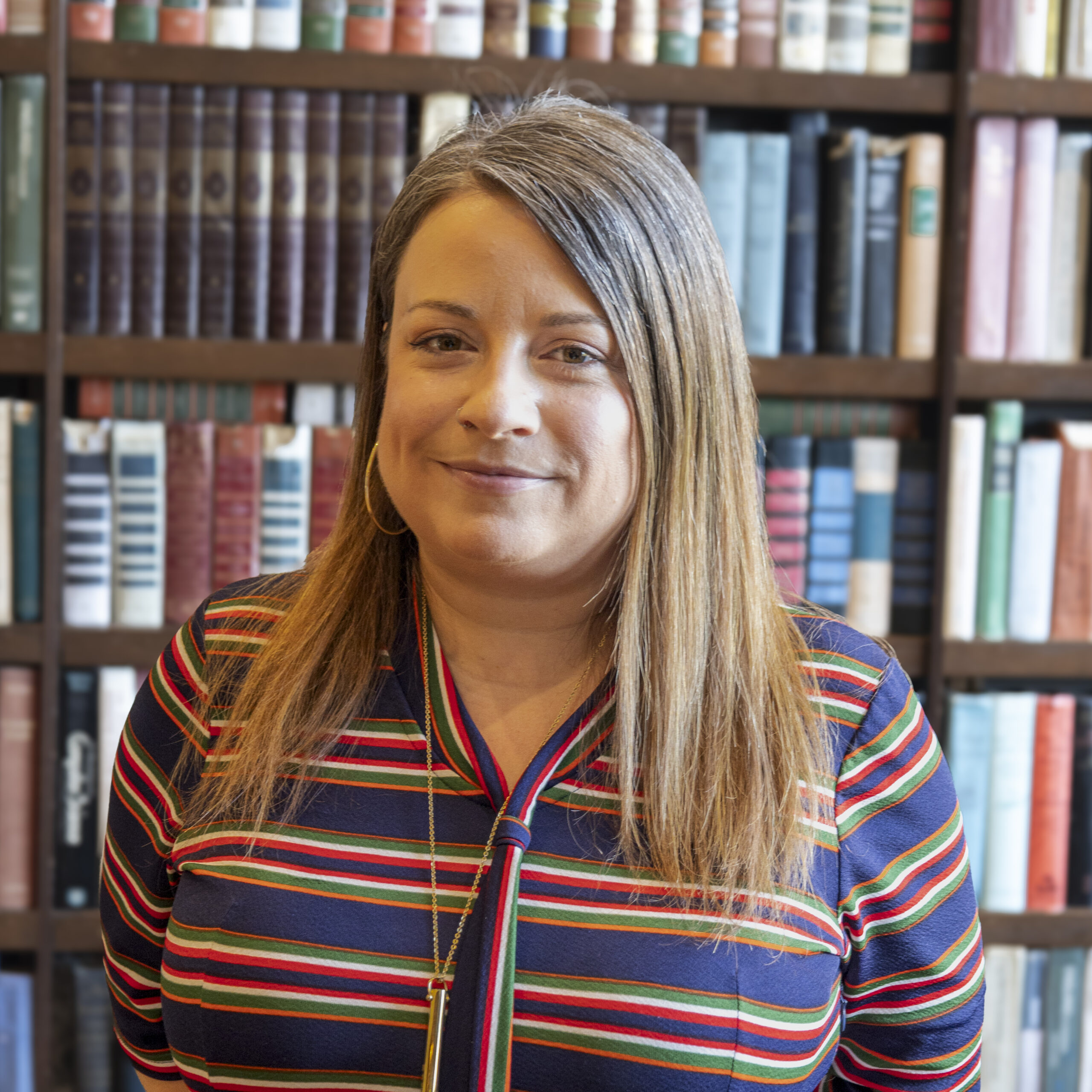
Noemi Fernandez Labarga
Noemi is a PhD candidate in Notre Dame’s English Department whose work examines the intersection between infrastructural justice and the literature of the Americas. When not dissertating, she is a managing editor for the peer-reviewed journal Religion and Literature, and she volunteers for the Moreau College Initiative at Westville Men’s Correctional Facility.
Research
Noemi’s dissertation, currently titled “Nuclear Transmutations and Quantum Observations in American Speculative Literature,” shows how speculative literatures of the twentieth- and twenty-first centuries expose seemingly invisible regimes of infrastructural violence that escalated during and after the nuclear arms race around the time of the Second World War. From uranium mining and plutonium processing to nuclear testing and waste storage and dumping, nuclear infrastructures are variegated and multitudinous, impacting every aspect of human and nonhuman life. Those who are disproportionally affected by what Noemi calls “nuclear coloniality,” however, are racialized populations with ever-present legacies of colonial history. While those who operate from a site of privilege may not be able to see clearly through the murky surface of the nuclear complex, writers from affected communities are all too familiar with the consequences of an ever-present militarized society.
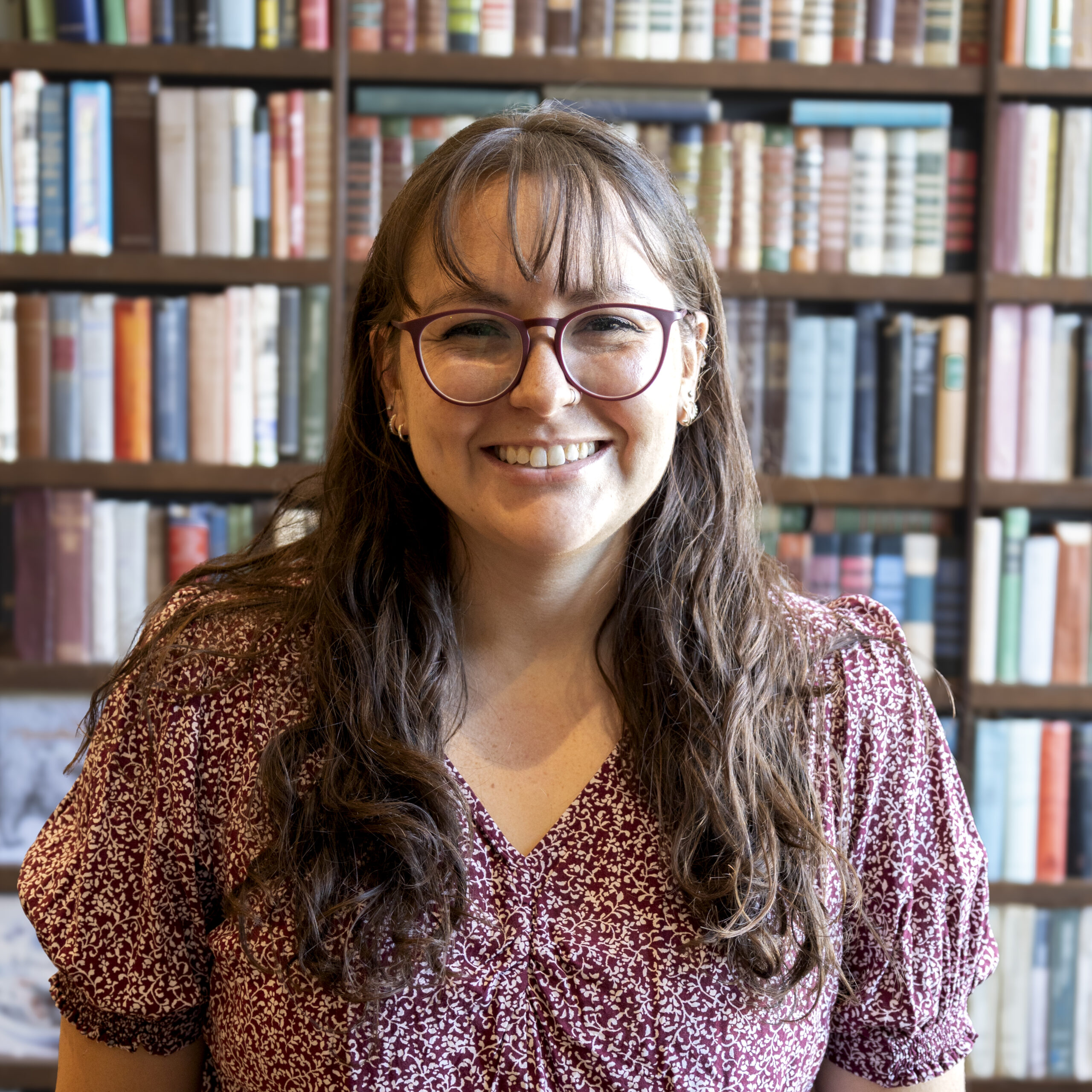
Katie Heatherly
Katie is a Ph.D. student studying the intersection of religion and gender and sexuality in 20th-century United States. She received her M.A. in History from Baylor University and her B.A. in History from Union University. She is originally from Asheville, North Carolina.
Research
Katie studies twentieth-century evangelical women, gender, and sexuality. Her research centers evangelical sex advice and purity culture and explores questions of positionality, authority, agency, and navigation of patriarchy. Her historical inquiries shed light on the various paths evangelical women chose amid constraints and illuminate the ways evangelicals’ positionality, primarily their gender and race, shaped the sexual ethic they advanced.
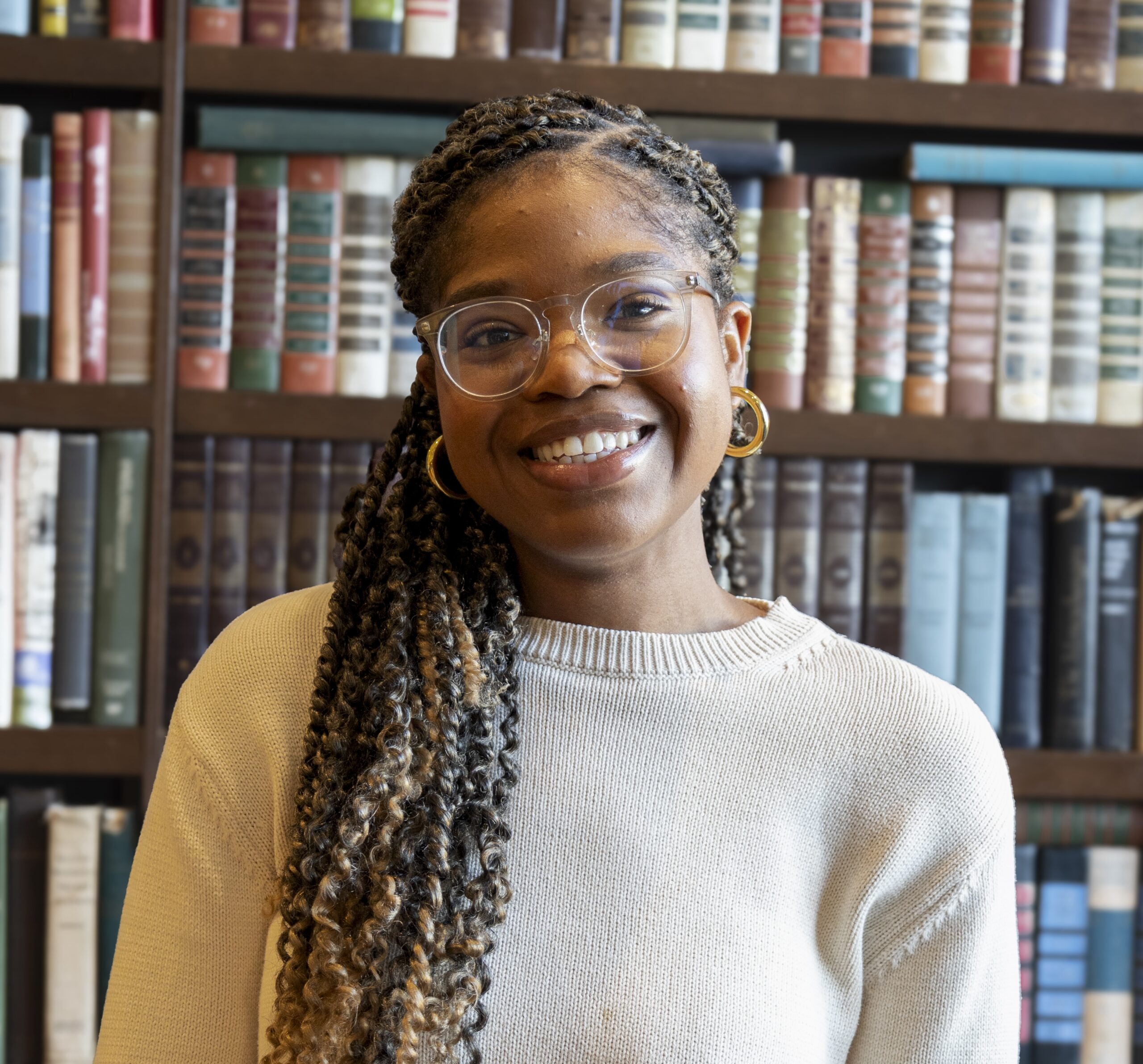
Grace Kemgang
Grace Kemgang is a student in the Law School.
Research
As a first-generation immigrant, Grace is most fascinated by pursuits that intersect culture, justice, and humanity. In her undergraduate institution, she studied what ignites global social conflicts. She found that sociopolitical imbalances often lead to unrest. Now, as a law student, she advocates for clients experiencing human rights atrocities in the Global Human Rights Clinic. She hopes that her career will be marked by eradicating these injustices.
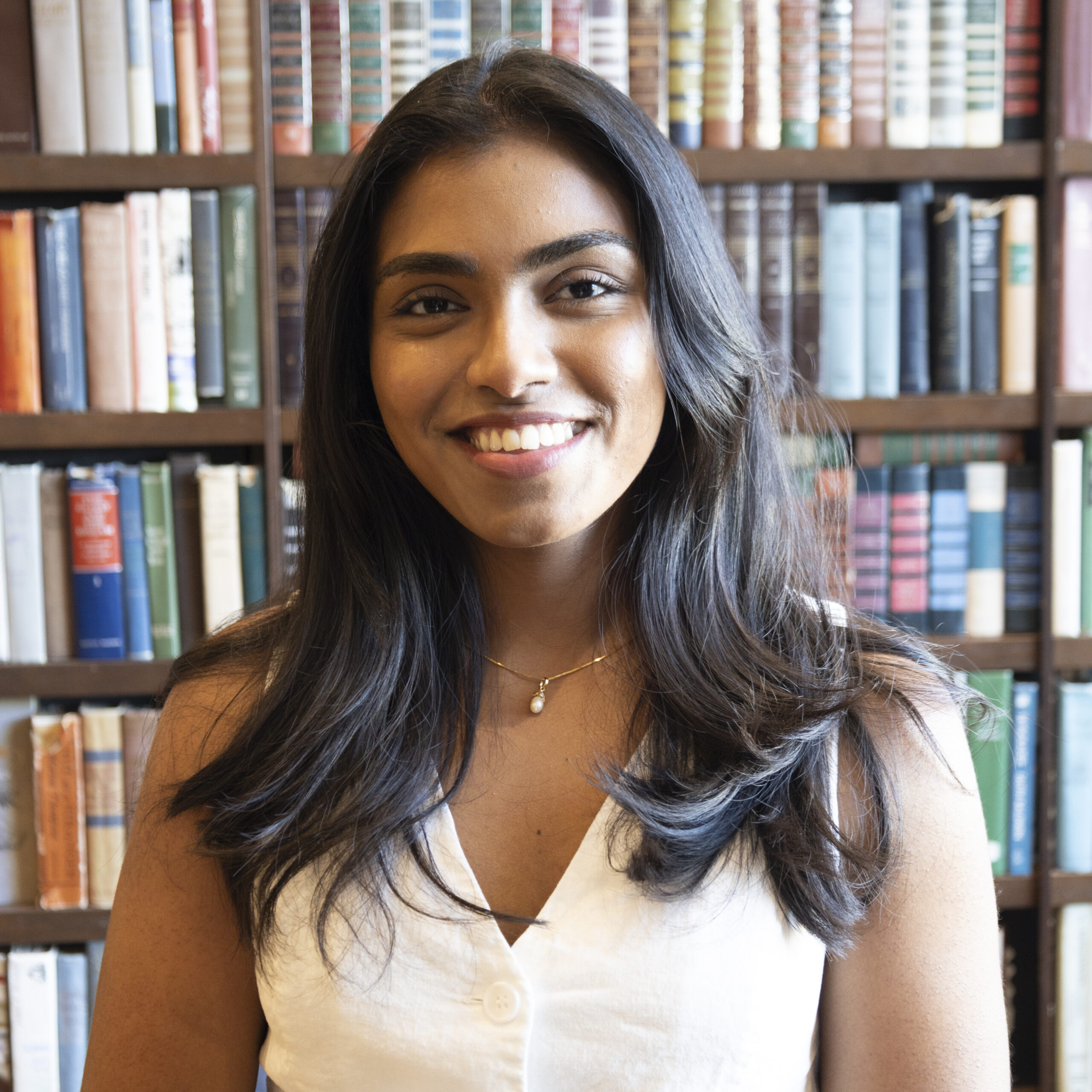
O. Amandhi Mathews
Amandhi is a Ph.D. student in the Cody Smith Laboratory studying sensory neuron development using zebrafish as a model organism. Amandhi is originally from Sri-Lanka and came to the United States to pursue her bachelor’s degree in biology from the University of Dallas. At Notre Dame, Amandhi has held positions as the Chair of Professional Development and Outreach of the Association for Women in STEM. She is also an ambassador for EducationUSA, a Fulbright Outreach Program that assists the education outreach efforts of Fulbright Sri-Lanka.
Research
Proper formation of neural circuitry depends on the precise organization of the hallmark cells of our nervous system, neurons and glia. The genetic mechanisms controlling neuron-glia dynamics in early development remain largely unknown. To understand these dynamics, Amandhi studies the establishment of sensory circuits in zebrafish which requires accurate, developmentally timed positioning of neurons and glia. Her work has identified two genes, previously unelucidated in nervous system development, as critical for the neurons’ ability to enter the spinal cord and form a circuit. This work ultimately informs strategies and treatments for neurodevelopmental disorders where early aberrant neuronal wiring leads to disease states in neuronal tissue.
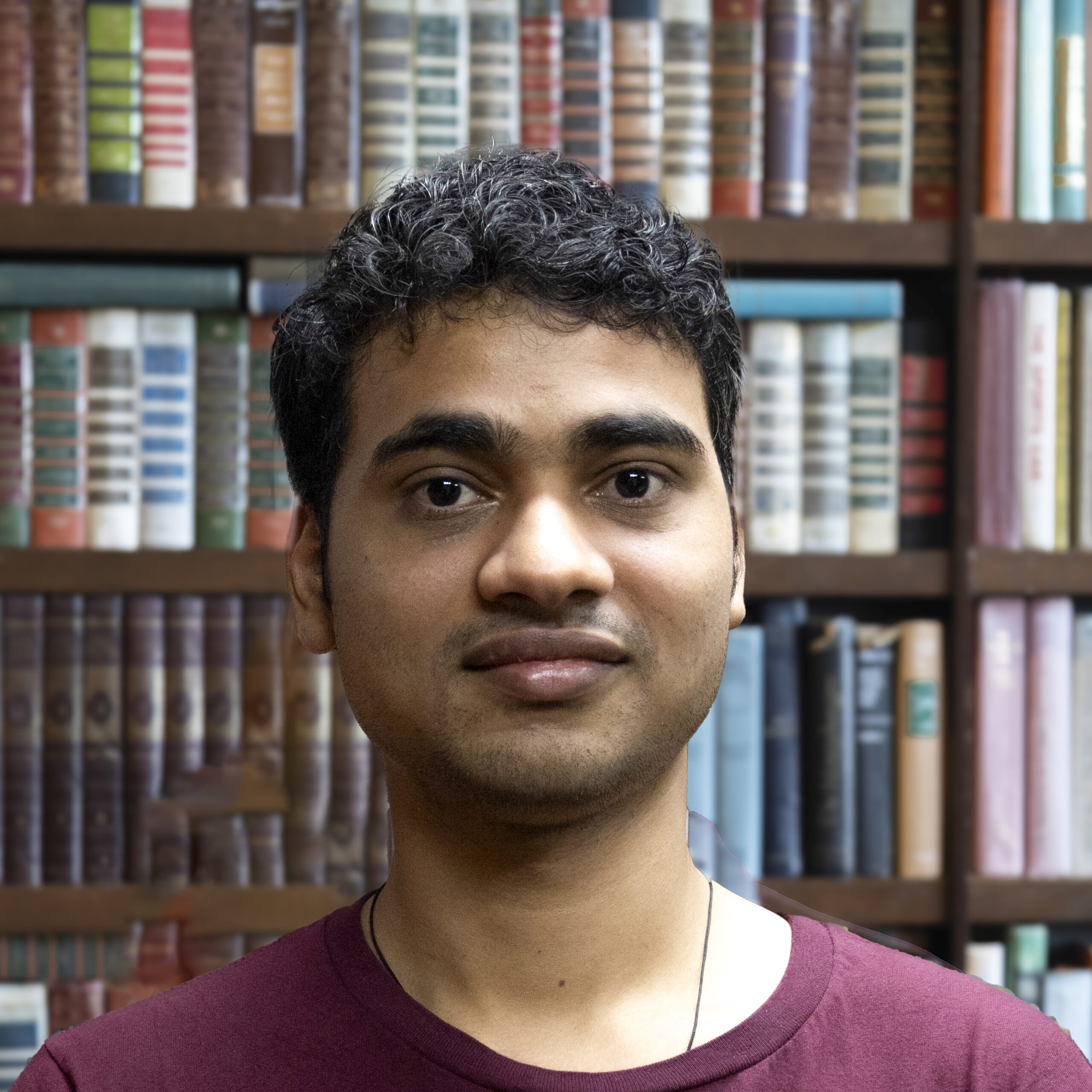
Neeraj Maurya
Neeraj was born in the small village of State Uttar Pradesh, India. Neeraj went to school at a government-run school Jawahar Navodaya Vidyalaya Palghar, and his higher education in chemistry is from Indian Institute of Technology-Bombay and Delhi University.
Research
Neeraj is an organic chemist in the Brian Blagg lab. His work is to synthesize small molecules that can inhibit heat shock protein-90 (hsp90), which is highly expressed in cancers.
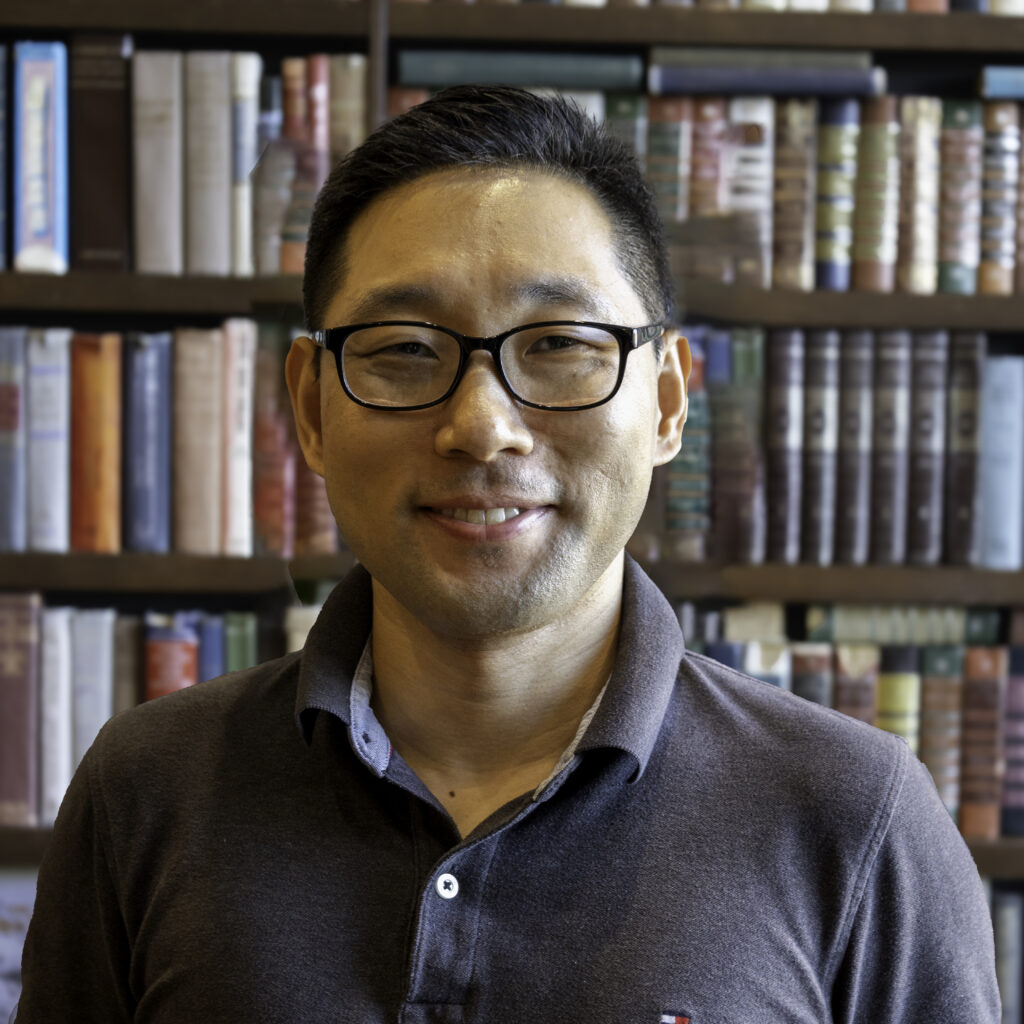
Kyung Mo Kang
As a JSD candidate and human rights lawyer, Kyung focuses on using international law to address long-lasting human rights violations under authoritarian regimes, with a particular emphasis on transitional justice. Kyung’s research primarily concentrates on North Korea and China. He has published two books on international crimes committed by the North Korean government and has presented on the food crisis in North Korea.
Research
Since the UN determined that human rights violations in North Korea could constitute crimes against humanity and recommended individual accountability, scholars have explored mechanisms for addressing the North Korean human rights crisis. However, these studies often overlook victims’ voices and the democratic legacy. Kyung’s research seeks the most appropriate criminal tribunal model to promote democracy and peace in North Korea from a transitional justice perspective. Using qualitative methods, including interviews with North Korean refugees, it examines international, domestic, and hybrid tribunal models within the North Korean context. The research ultimately aims to identify the most suitable criminal tribunal model for North Korea.
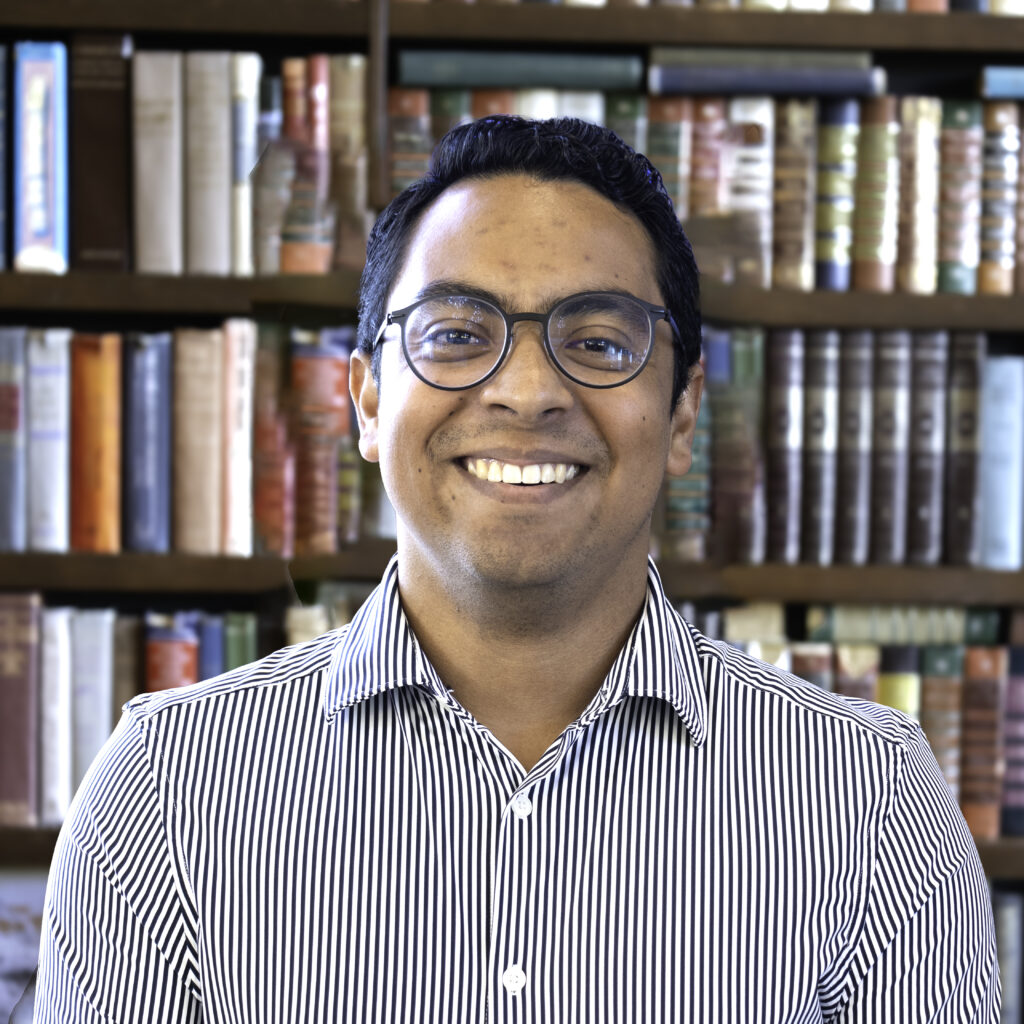
Angel Muñoz-Carpintero
Angel is a JSD student and human rights lawyer from Honduras, having received his LL.M from Notre Dame.
Research
Angel’s dissertation, preliminarily titled “Remilitarization of post-conflict Central America: Structural and Strategic Impunity of Serious Human Rights Violations,” focuses on the current Central American context, particularly the constitutional role of the militaries, the use of force by military forces in non-conflict contexts, and the effects of militarization in judicial independence when adjudicating cases of serious human rights situations, enabling impunity.
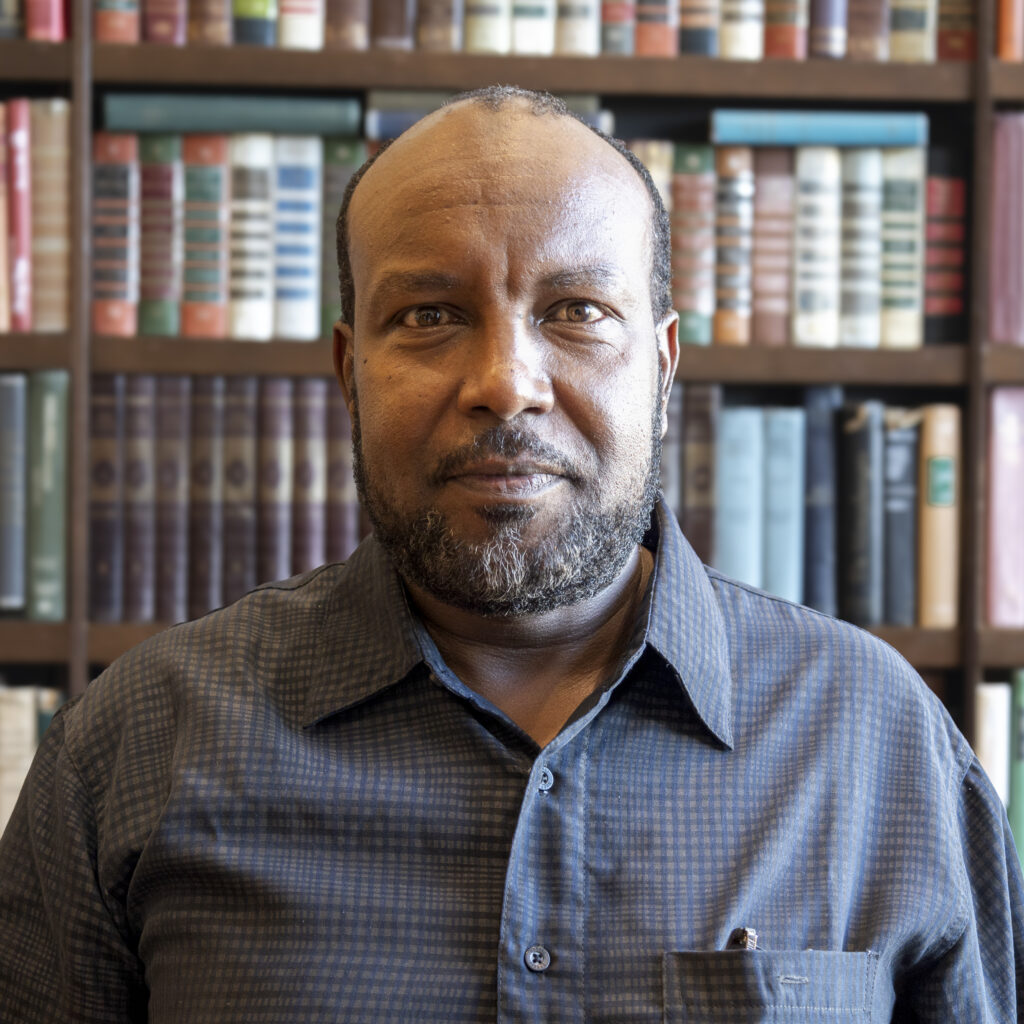
Raege Omar
Raege is a Ph.D. student in the joint peace studies and political science program at the Kroc Institute for International Peace Studies in the University of Notre Dame’s Keough School of Global Affairs. Raege is a Dean’s Fellowship recipient at the University of Notre Dame. His research areas of interest include forced migration, conflict memory, and transnational social movements in legal mobilization, building on the renewed global shift directed toward transnational justice and more accountability against impunity in gross human rights violations. Raege hopes to draw on his lived experience in conflict and comparative politics to study multilayered causal relationships in patterns of transnational diaspora activism influenced by conflict memory with temporal and contingent history. He previously completed a master of science in sociology at the University of Texas San Antonio.
Research
Western liberal democracies absorb large numbers of forced migrants with past collective memory narratives which document atrocities to acknowledge victims and identify alleged perpetrators. Raege’s research draws on three case studies to investigate how forced migrants engage in transnational legal mobilization in the absence of transitional justice in their country of origin or when the country is unable or unwilling to pursue accountability for human rights violations. It asks how and why forced migrant legal mobilization extends transitional justice into the transnational space to address impunity in lesser-known conflicts in the Global South. The project aims to develop a midlevel theory on understanding legal mobilization as a distinct from of transitional justice that is situated at the transnational space.
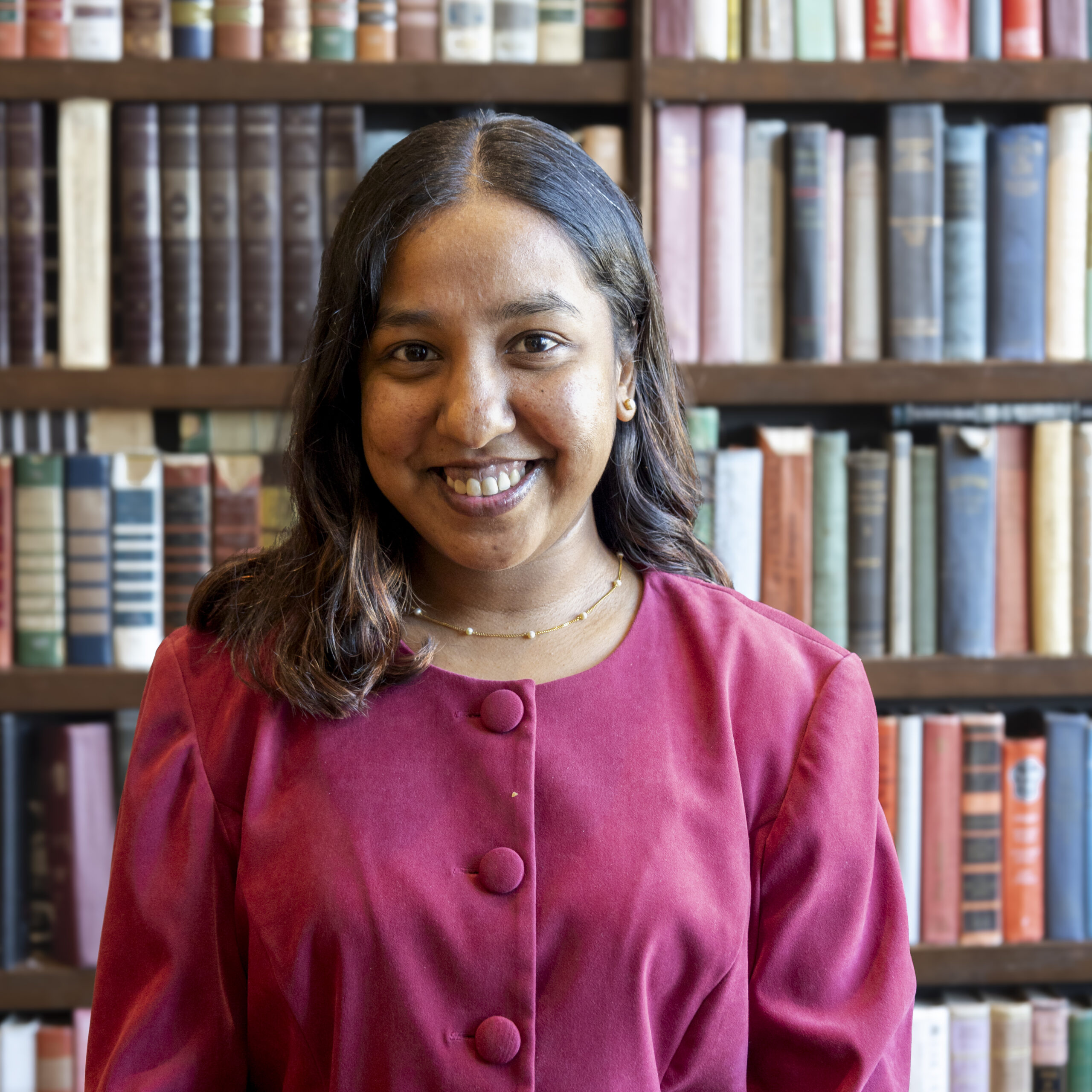
Pavithra Rajendran
Pavithra is a JSD candidate, multi-faceted feminist, socio-legal researcher, and first-generation lawyer. She holds dual LL.M degrees, one from Sri Lanka and another from University of Notre Dame, where she was a Fulbright awardee. Currently, at Notre Dame, she’s a Kellogg Ph.D. Fellow, Klau Affiliate, and Law and Economics Fellow. Also, she’s an Ostrom Fellow at the Mercatus Center. Before commencing her JSD, she was a lecturer in law at the University of Colombo, Sri Lanka.
Research
Pavithra’s research asks, first, whether outdated, Victorian-era laws and procedures adequately address women’s needs and sensitivities, thereby granting them justice. Second, it asks whether this marginalization be free from the criminal justice system when women who are already marginalized due to socio-economic and cultural factors seek justice. Finally, she asks whether international and domestic laws sufficiently address women’s rights in criminal law and justice systems and whether they have taken commendable steps to eradicate discrimination effectively. To all three questions, her research argues that the answer is no. In summary, her research explores how women, already marginalized and vulnerable to violence, are further victimized by existing male-oriented laws and procedures. It also examines how effective domestic and international frameworks can address these issues, analyzing cases from both the Global North and South.
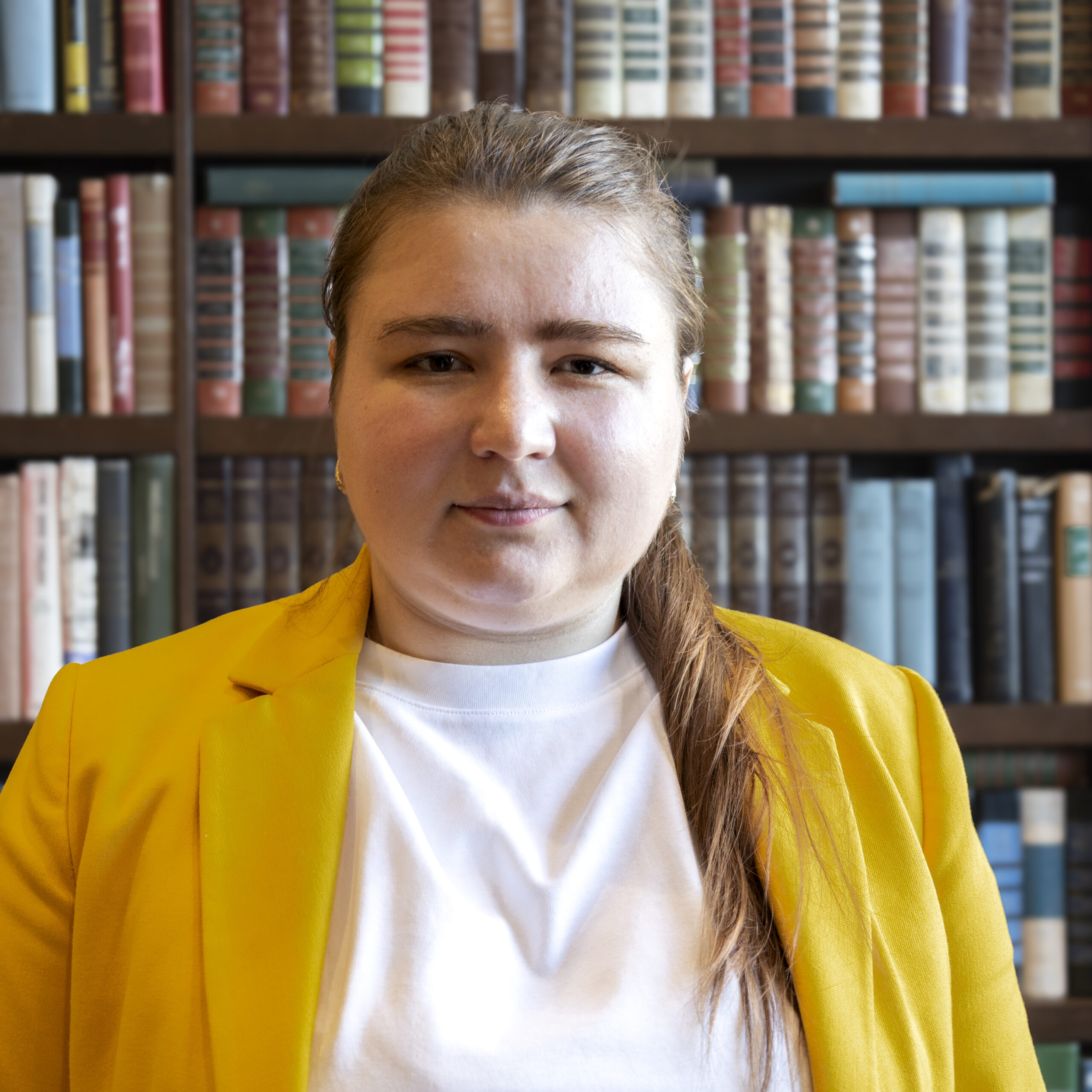
Anna Sokol
Anna is a Ph.D. student in computer science at the University of Notre Dame, with a strong academic background in sociological comparative social research. Her research focuses on the intersection of large language models, ethics, and cultural context. She explores the ethical implications and cultural nuances of large language models (LLMs), aiming to ensure that artificial intelligence (AI) technologies are developed and used responsibly, with respect for ethical standards and cultural diversity.
Research
Anna’s research project aims to develop a multilingual question-answering system for the Colombian Truth Commission Data Archive. By using advanced language models, they ensure the system preserves socio-cultural context and mitigates biases. The goal is to make the archive more accessible and useful for both researchers and the public, helping to uncover historical injustices and promote reconciliation in post-conflict Colombia.

Kyla Walker
Kyla is an MFA student in the creative writing program. Her research interests lie at the intersection of Middle Eastern studies, sociology, anthropology, and literatures of annihilation, exile, and resistance, with a specific aim to advance diversity, equity, and inclusion in the contemporary US publishing landscape. Guided by the principles of truth and political freedom, her research goals are dedicated to immigrants, refugees, and those from Middle Eastern-American social and racial backgrounds.
Research
Kyla is working on a novel titled (Middle) Eastern Standard Time. Inspired by her mother’s experience immigrating to the United States from Turkey in 1993, this manuscript aims to capture and reveal truths about the long history of Islamophobia and xenophobia in the United States and the impact it has had on individuals. The novel also aims to eradicate the commonly negative stereotypes of Middle Eastern immigrants portrayed in mass media and American pop culture. Brimful with escapes from arranged marriages to nineties-era cinema to the Lower East Side counter-culture, this novel grapples with what it means to become an independent woman and also an “American” in today’s world.
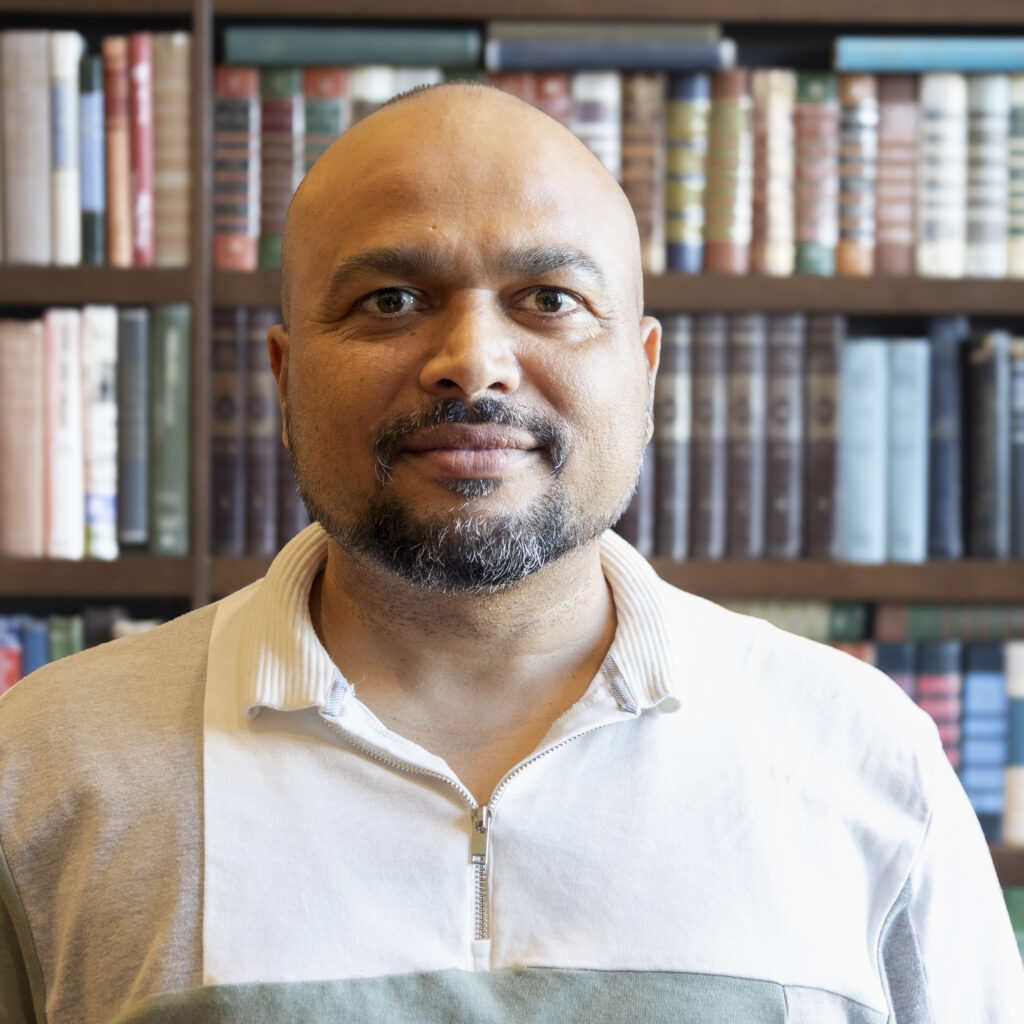
Subhas Yadav
Subhas is a PhD student from India at the Department of Romance Languages and Literatures with research interest in Afro-Latin American and Afro-Caribbean literatures and cultures.
Research
Subhas’s research aims at finding or creating a shared ground between literary studies and the notions of justice and questions of equality, liberty, and fraternity. He believes there is scope for creating a “relevant literary studies,” which could provide an archive of first-hand materials, or authentic voices or expressions of the real victims—for example, autobiographies of Dalit, Tribal, and Afro-Latino writers.
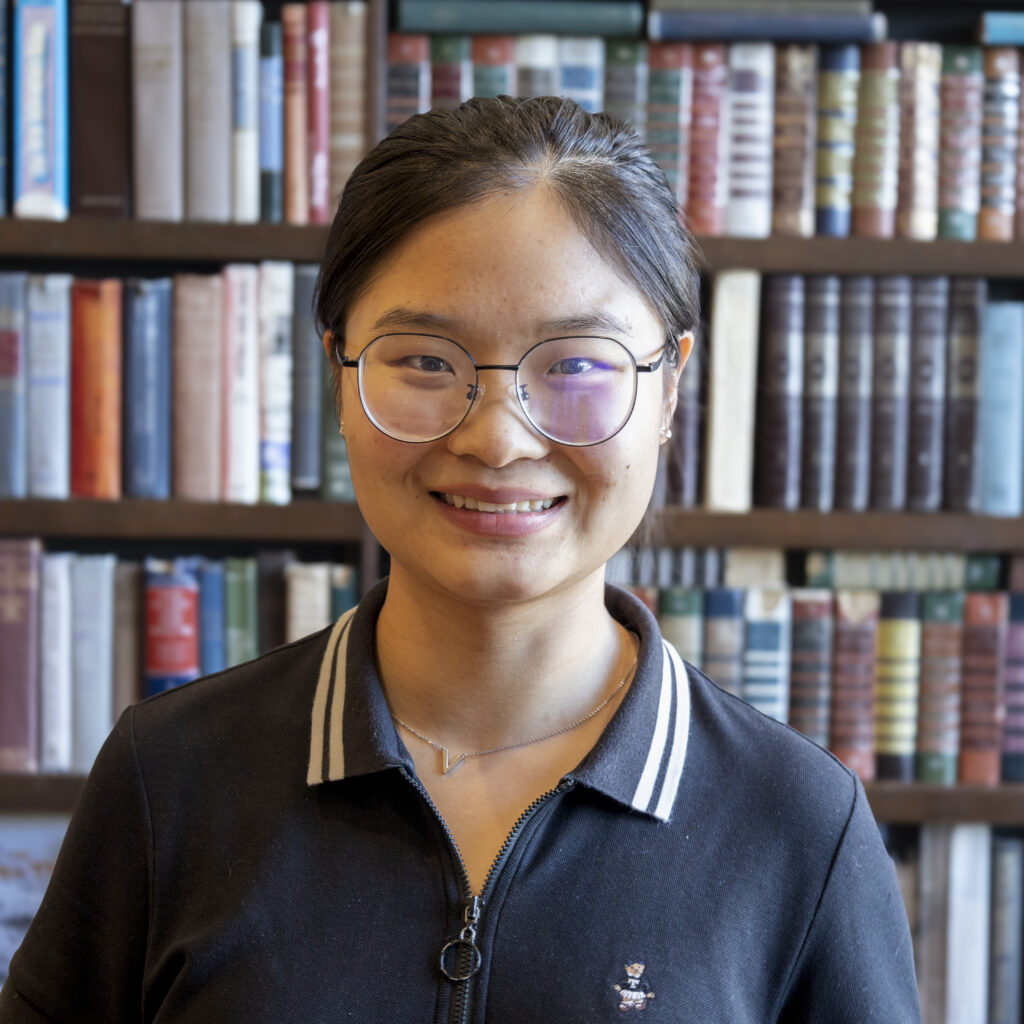
Yunyan Zhao
Yunyan is pursuing her Ph.D. in developmental psychology. She received her B.Sc. in psychology from Central China Normal University, M.Ed in developmental psychology from Beijing Normal University, and M.A. in psychology from the University of Notre Dame. She is interested in child and adolescent development, family dynamics and family system theory, and person-centered methods.
Research
Yunyan’s research explores child and adolescent development, focusing on the complex interplay of family and social media influences. Disparities in cultural heritage, socioeconomic status, and family backgrounds can significantly disadvantage youth, making it crucial to understand how these diverse realities shape development. Yunyan investigates the impact of family relationships on youth mental health in multicultural contexts and examine how social media use influences body image and eating concerns, particularly in college-aged women.

2023–24 Graduate Justice Fellows
In 2023–24, we welcomed our second cohort of fellows that represented four colleges, two schools, and six departments around the University. The fellowship is designed to create an interdisciplinary community of graduate students committed to scholarship that engages questions of justice. The aim is to introduce young scholars from various disciplines to questions of justice in the hope that they make those a regular part of their scholarship and teaching going forward.
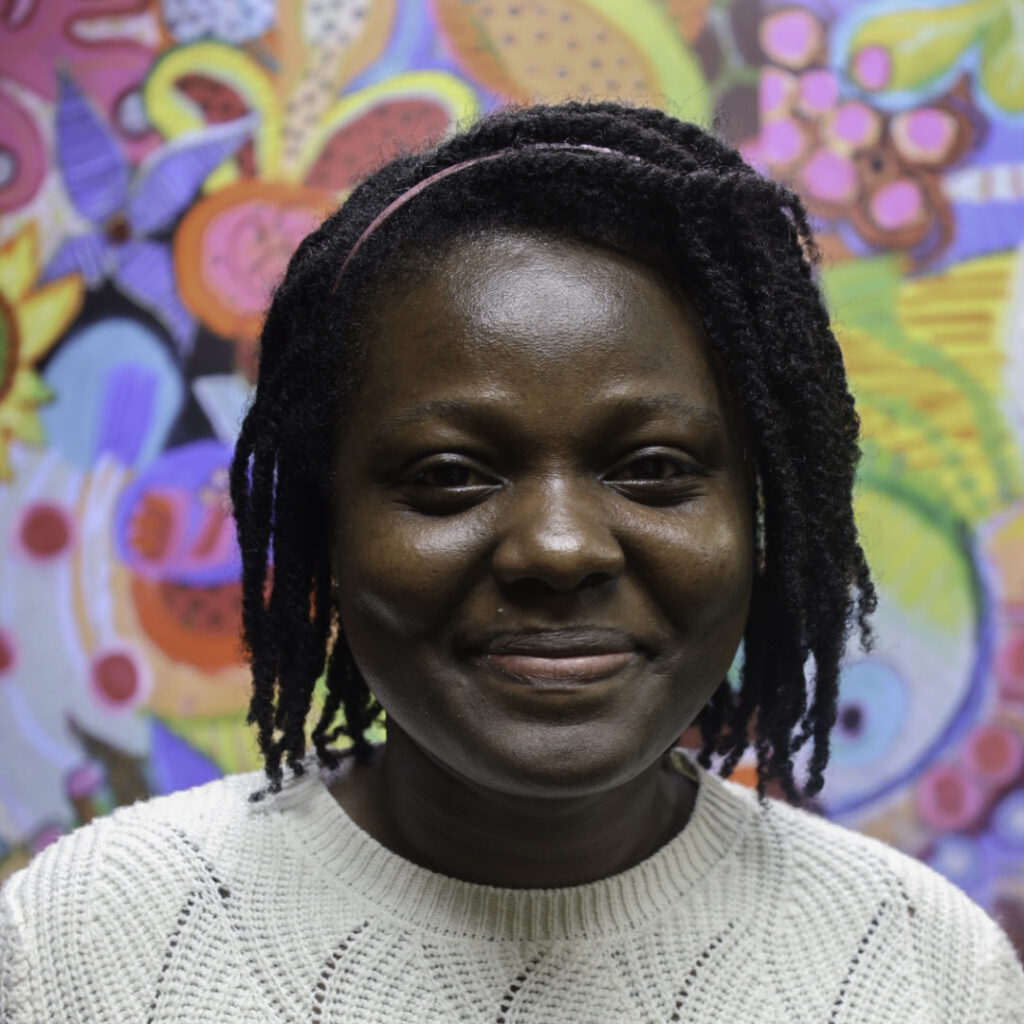
Georgina Agyei
Georgina is a Ph.D. student in the Department of Biological Sciences under the guidance of Dr. Felipe Santiago-Tirado.
Research
Georgina’s research, in collaboration with another graduate student in the lab, uses immunological and cell biology assays and microscopic techniques to understand the interaction between the fungi and the host alveolar macrophages, the first line of immune defense. When alveolar macrophages encounter Cryptococcus neoformans in the lungs, they form a membrane-bound structure called the phagosome around it, which goes through a series of complex maturation processes leading to the elimination of the pathogen. However, in an immunocompromised person, the pathogen modifies portions of this maturation process enabling it to survive, disseminate from the lungs to the brain, and cause life-threatening meningitis. Understanding how the pathogen does this will help serve as a piece of foundational knowledge for developing cheaper vaccines and improved therapeutics against the disease.
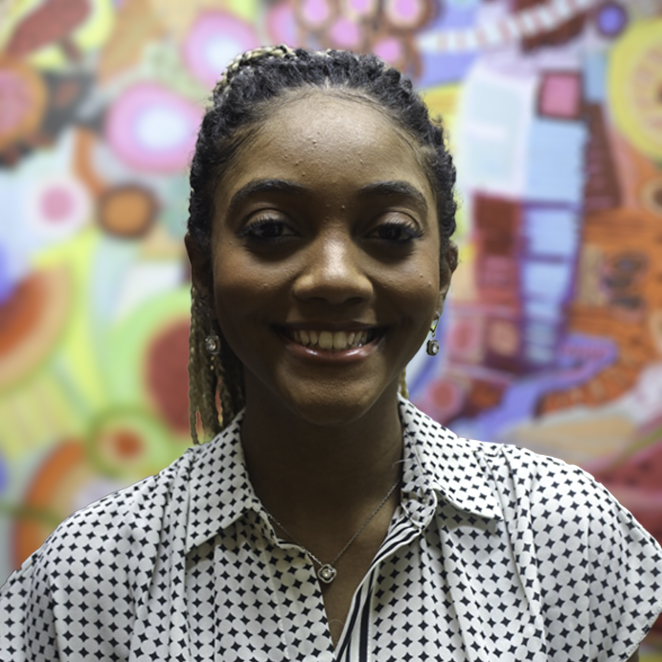
Kaitlyn Bowe
Kaitlyn is a law student involved in Notre Dame Law School’s Exoneration Justice Clinic. She is committed to advocating for the rights of all people within the justice system. Kaitlyn holds executive board positions on Notre Dame’s Black Law Students Association, the Exoneration Project, and the First-Generation Professional Students Organization. Kaitlyn also serves the Student Bar Association as a Diversity and Inclusion Committee Member.
Research
Kaitlyn’s research examines America’s mass incarceration crisis, seeking transformative justice at the intersection of law, community, and equity. Given the existence of staggering statistics and systemic disparities, she endeavors to understand the complexities of America’s punitive approach to criminal justice and advocates for proportionality in sentencing. Focusing on rehabilitation rather than punishment, Kaitlyn researches how we can address the underlying causes of criminal behavior and break the cycle of recidivism. Her research offers avenues for addressing the mass incarceration crisis and reducing crime.
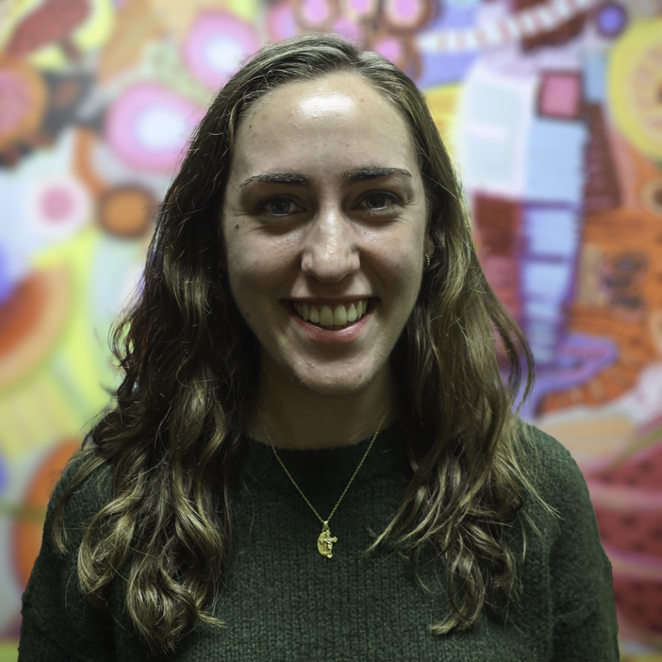
Louisa Conwill
Louisa is a Ph.D. student in the Department of Computer Science and Engineering. A graduate of Brown University, Louisa worked as a software engineer for Amazon Alexa and served as a campus missionary with the Fellowship of Catholic University Students before starting graduate studies at Notre Dame.
Research
With collaborators, Louisa has created a software engineering framework intended to evaluate existing technologies in light of Catholic social teaching and to guide the development of new technologies towards human dignity and the common good. They propose this framework in their book Virtue in Virtual Spaces: Catholic Social Teaching and Technology (Liturgical Press, 2024). In the book they examine four case studies of existing technologies in light of the framework and demonstrate that the success of these platforms in creating healthy online spaces is correlated with the extent to which these platforms have aligned with Catholic social teaching in their designs.
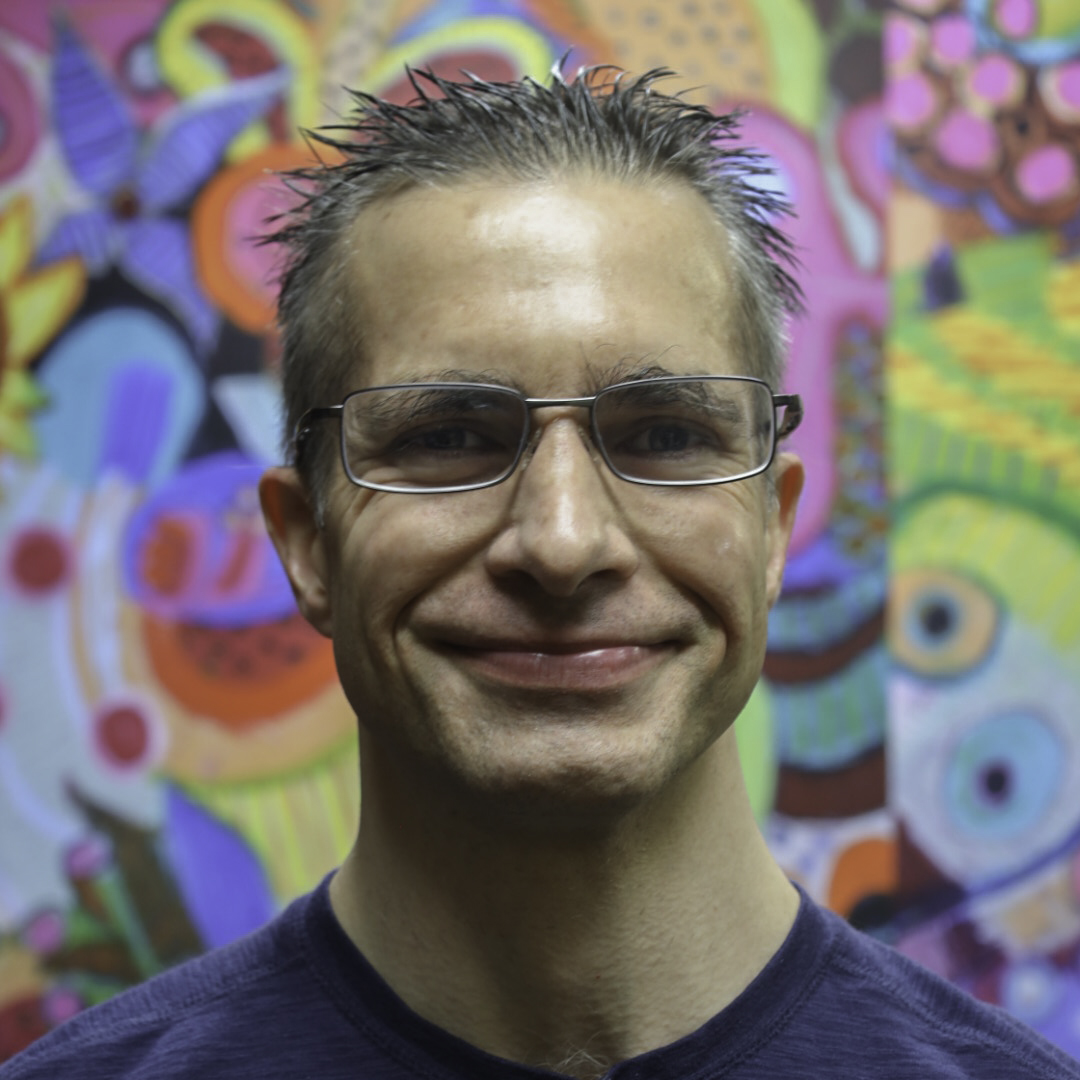
Joel Devonshire
Joel is a doctoral student in peace studies and psychology focusing on the psychology of nonviolence, especially the tension and interplay between empathy and insistence for justice, the development and control of moral identity and narratives, how fixed-pie and zero-sum attitudes affect resistance to and efficacy of mediation and other conflict interventions, and how a framework of basic human needs might help break down barriers between individuals and groups.
Research
Joel’s research examines the psychological dynamics that affect the development of peace and conflict within individuals and among groups. His research focuses on two psychological constructs—relational empathy and critical consciousness, or conscientização—that reflect how people relate to one another amid social conflict. He argues that these two constructs, when combined and held in tension, are the engine of a constructive and nonviolent social change that contributes to a positive, just peace.

Sofia Dueñas
Sofia is a doctoral student in the Department of Sociology. Using quantitative and qualitative methods, her research explores issues of (in)equity in K-12 education policy.
Research
Sofia’s research considers the impacts of academic policies on students, considering the impacts of third grade retention policies under which students who do not show they are able to read repeat third grade in hopes of improving their literacy skills before they get further along in their education. In addition, her research considers school climate and the ways that this can impact teachers and students, including the role of school violence and safety policies and how it shapes students’ and teachers’ feelings at school, as well as their outcomes.

Ben Francis
Ben is a Ph.D. student in peace studies and political science. He is originally from the United Kingdom and has a decade’s worth of experience working in the development and peace building fields through a number of international NGOs. Ben has lived and worked in conflict-affected areas as diverse as Palestine, Libya, Nepal, and Afghanistan, and these experiences have helped to shape how he understands the drivers and mechanics of conflict in different contexts.
Research
Ben’s research asks whether performances of masculinity exacerbate links between climate change and violent conflict and where the impacts of climate change are most likely to reinforce rigid patriarchal norms. He hopes to develop these research questions into a broad portfolio of inquiry that retains questions of climate justice and gender justice as a primary motivation.

James Kirk
James Kirk is a Ph.D. student in the Department of Political Science.
Research
James’s research interests include public opinion, political geography, and political behavior. He is particularly interested in rural politics and public policy, including how perceptions of economic, social, and environmental injustice influence political attitudes in rural communities.
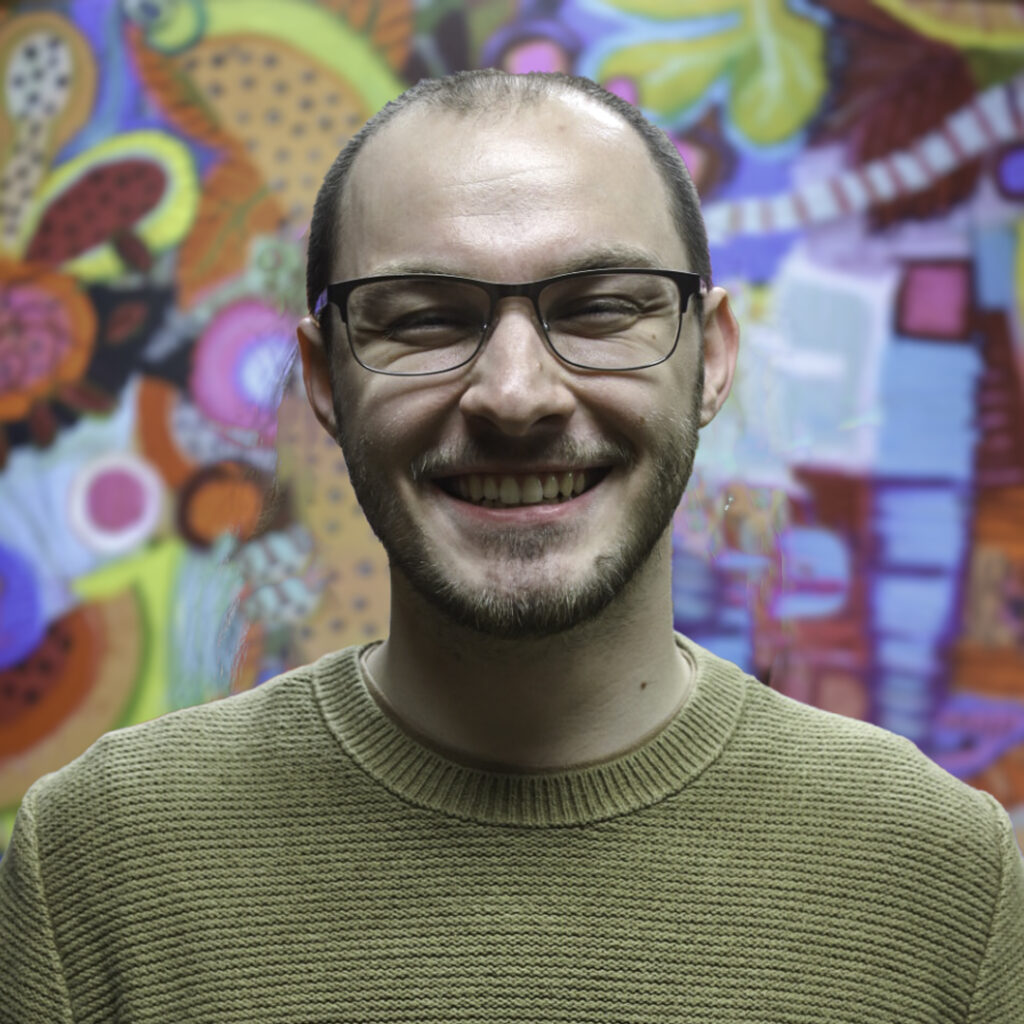
Nate Kroeze
Nate Kroeze is a Ph.D. student in the Department of Biological Sciences with a broader focus on global change biology. His research centers on the disparate impacts of climate change on Indigenous communities in the United States and the legal challenges and opportunities for ecological conservation on tribal lands.
Research
Nate’s research investigates the efficacy of Indigenous climate adaptation plans, focusing on their unique approach to managing ecological change. These frameworks integrate traditional ecological knowledge (TEK) with contemporary scientific methods, fostering a deeper understanding of ecosystem dynamics. By highlighting these often-neglected efforts, Nate’s research aims to elevate Indigenous voices in ecological discourse.
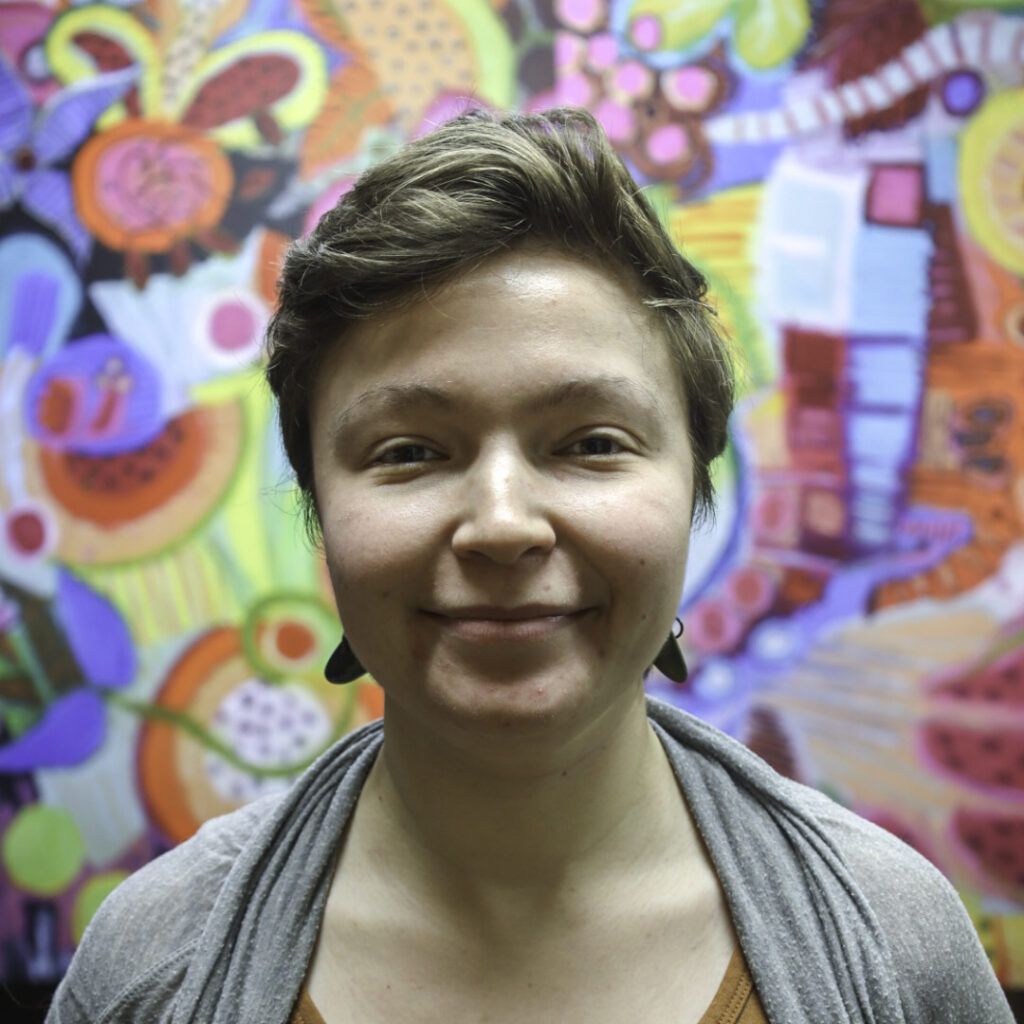
Liz Moison
Liz is a Ph.D. student in the Department of Sociology studying gender and social movements. Her research explores how social movements include or exclude children and adolescents in their decision making, especially when the social movement is oriented around issues facing kids directly. In particular, she focuses on how queer social movement organizations are responding to sociopolitical action that targets the rights of transgender children.
Research
Liz’s research seeks to answer the question of why people invest in keeping certain voices and stories out of their public libraries, using a mixed methods approach that combines recordings of library board meetings, interviews with librarians and conservative activists, and analysis of documents and media related to four book ban attempts around the county. This research contributes to sociological studies of conservative social movements, gender scholarship, and understanding of how inequality endures across time.
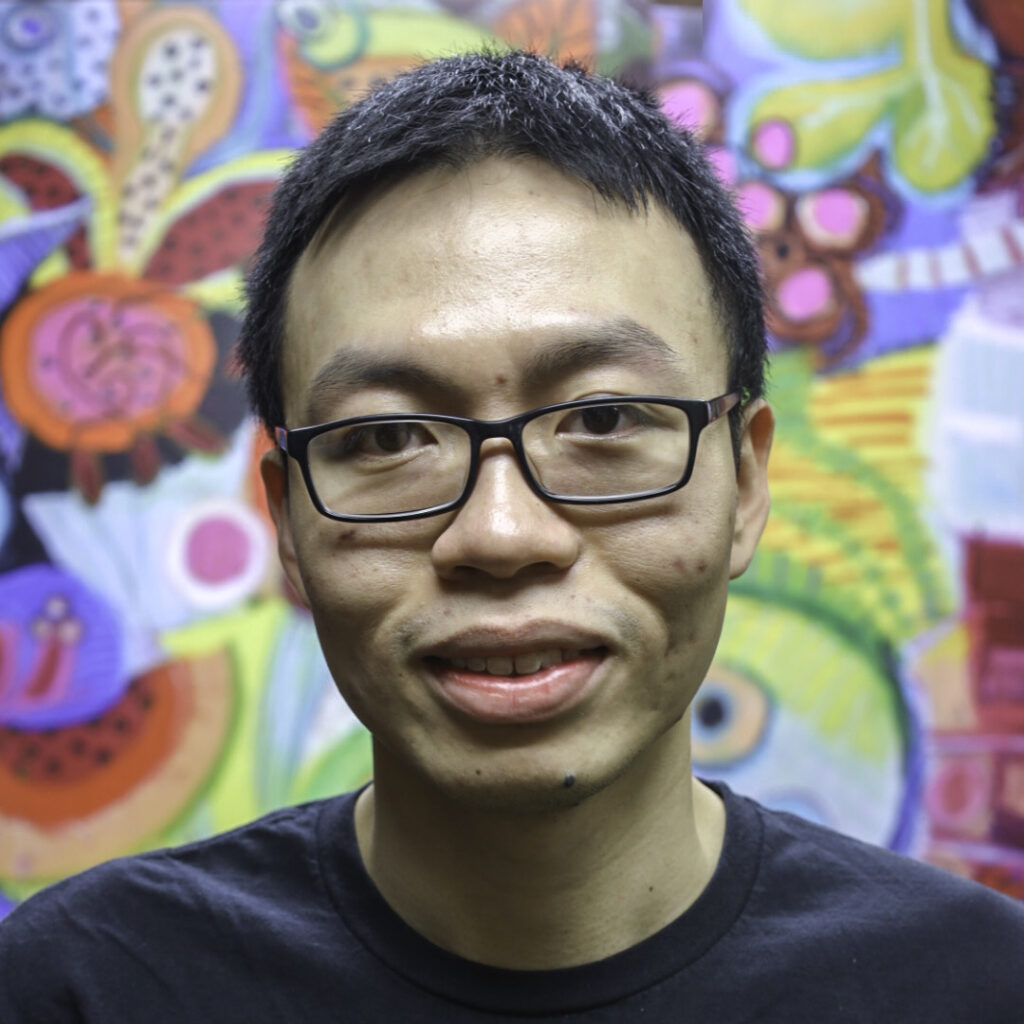
Thanh Khoa Nguyen
Thanh Khoa Nguyen is a Ph.D. student in the Integrated Biomedical Sciences program.
Research
Thanh’s research studies the genetic pathways underlying the developmental genetics of multiciliated cells (MCCs) using the amenable zebrafish kidney. His research focuses on the role of empty spiracles homeobox gene 2 (emx2), a transcription factor previously found to be active in several developmental processes around the body, in ciliated cells development. His study is significant in calling attention to prostaglandin signaling and renal MCC development as helpful targets for detection of kidney diseases. Furthermore, the application of the small molecule PGE2 opens a promising direction to utilize it as a therapeutic treatment for renal cilia dysfunctions in kidney diseases.
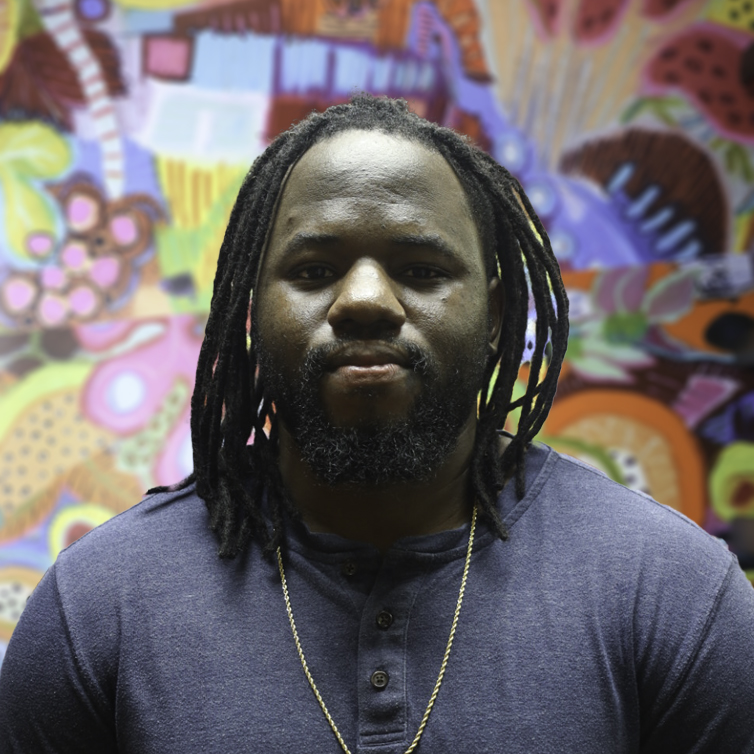
Ozioma Collins Oguine
Ozioma Collins Oguine is a Ph.D. student in the Department of Computer Science and Engineering, advised by Dr. Karla Badillo-Urquiola. His research interests lie at the intersection of human-computer interaction, social media and immersive technologies (Social VR/AR/XR), and online safety and privacy, with a specific aim to advance diversity, equity, and inclusion in computing.
Research
Ozioma’s research explores the online behaviors, challenges, and coping mechanisms of marginalized and underrepresented adolescent populations. Through qualitative and quantitative methodologies, he seeks understand how the intersecting factors of their identities shape their online experiences. Using insights gleaned from empirical research, he proposes and designs culturally competent technological interventions aimed at promoting digital literacy, resilience, and responsible online conduct among marginalized adolescents.

Connor Patrick
Connor Patrick is a candidate in the M.S. in management in the Mendoza College of Business with a concentration in finance. Connor serves as a mentor in the Business Honors Program and is an assistant rector of Dillon Hall.
Research
Connor researches how programs like the Low Income Housing Tax Credit (LIHTC) program–perhaps the most robust system of incentives for private developers to construct affordable housing–can be expanded. Right now it is extremely difficult to win a LIHTC grant, particularly those structured as a 9% tax credit, which minimizes the gap in equity capital needed to fund something like a new affordable housing development.
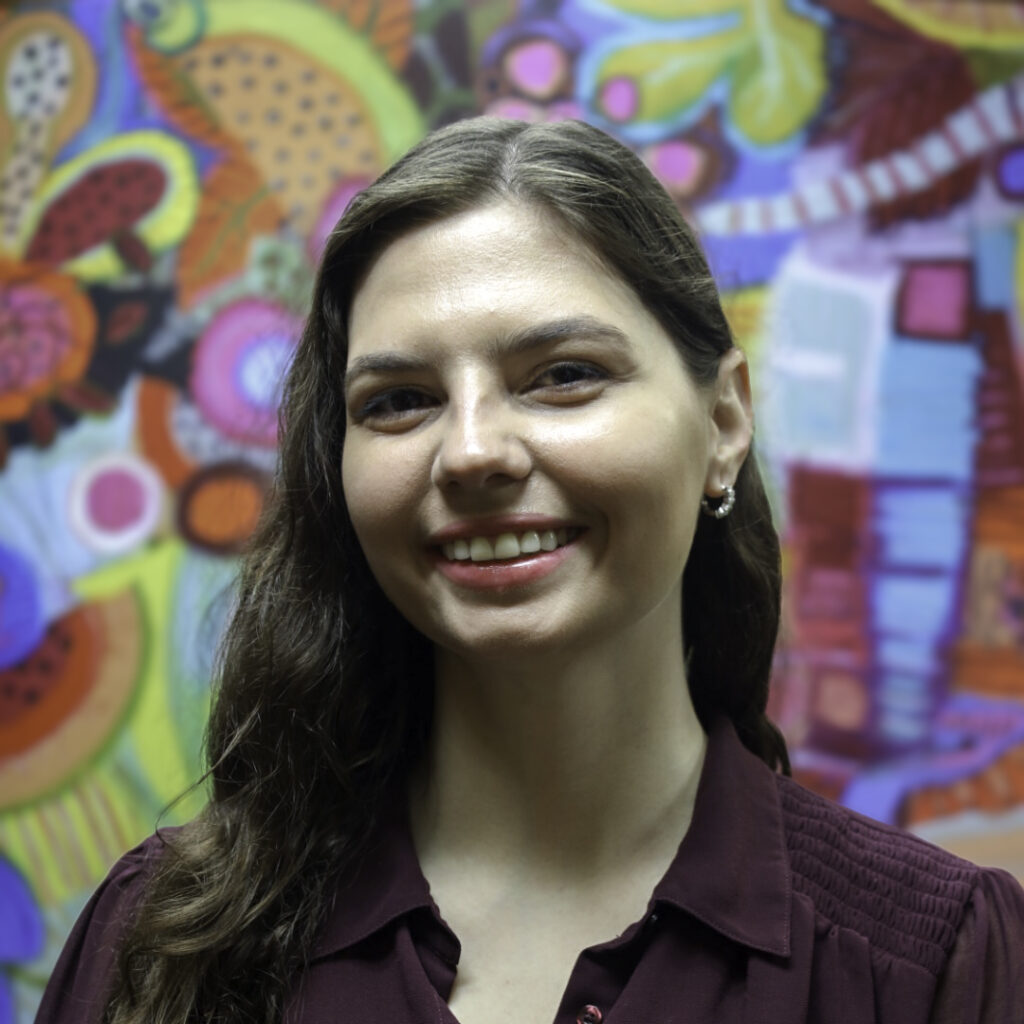
Kristen Sieranski
Kristen Sieranski is a Ph.D. student in English. Her research focuses on representations of ghosts on stage as a way for playwrights to represent personal, community, or national traumas, especially in postcolonial contexts. She is interested in performance as a way for communities to approach the unspeakable.
Research
Kristen’s research constellates the relationship between ghosts, performance, and historical calamities of colonization and enslavement around the Atlantic. She analyzes haunting in Anglophone drama from the mid-twentieth century to the present, using plays from Nigerian, St. Lucian, Irish, Scottish, and American writers to understand ghosts as a phenomenon on stage. Her research makes an ideological claim that ghosts in literature are a useful tool for thinking about violence carried out on a national or global level and a generic claim that the presence of ghosts on stage affords mechanisms of understanding historical calamity that are not otherwise available.
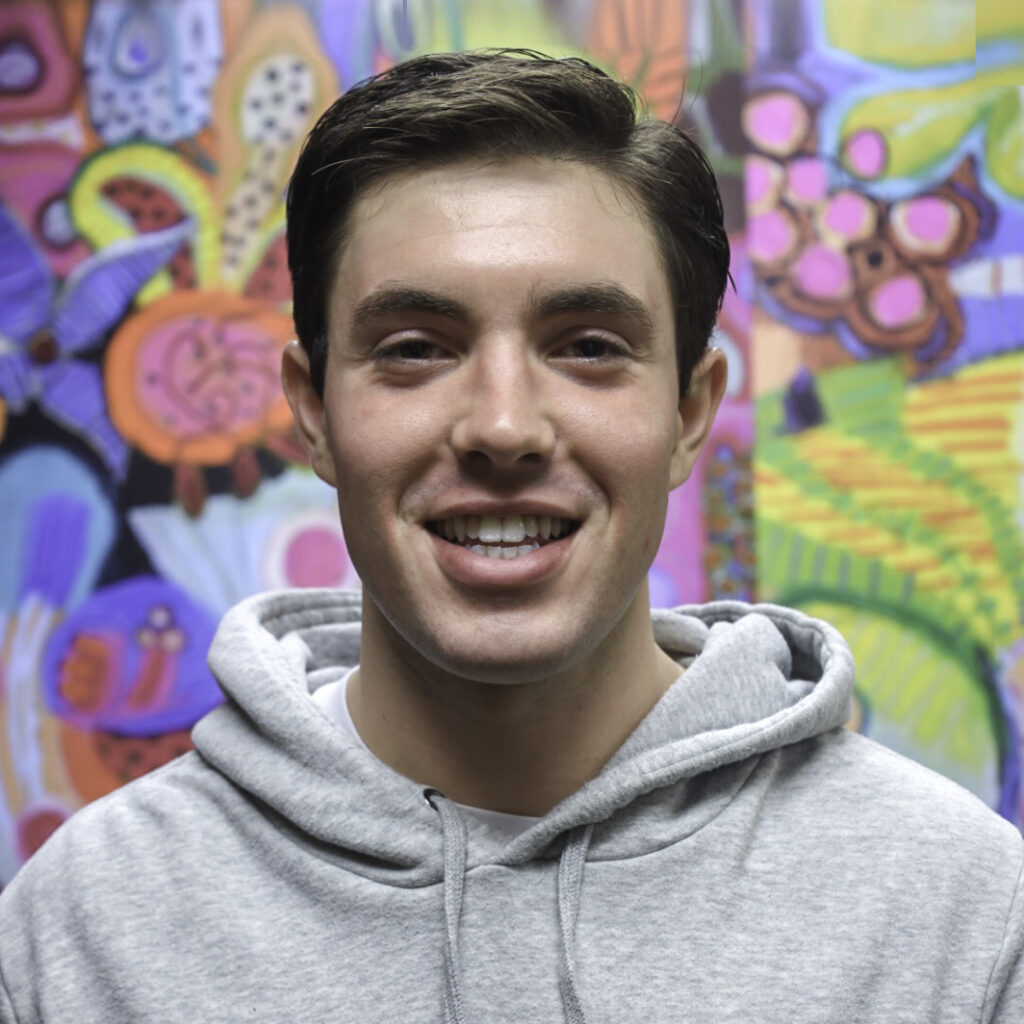
Dennis Wieboldt
Dennis Wieboldt is a J.D. candidate at Notre Dame Law School and Ph.D. student in the Department of History. He is a Richard and Peggy Notebaert Premier Fellow at the Graduate School and Edward J. Murphy Fellow at the Law School.
Research
Dennis’s research explores the relationship between law, politics, and religion in the twentieth-century United States, with a particular focus on the development of American Catholic legal thought and institutions. Dennis’s research illustrates how, after Catholic law schools began to rise to prominence during the mid-twentieth-century, members of a once-marginalized faith community attempted to build bridges with non-Catholics to effectuate their vision of a more just society.

2022–23 Graduate Justice Fellows
In 2022–23, we welcomed our inaugural cohort of fellows that represented three colleges, two schools, and 11 departments around the University. The fellowship is designed to create an interdisciplinary community of graduate students committed to scholarship that engages questions of justice. The aim is to introduce young scholars from various disciplines to questions of justice in the hope that they make those a regular part of their scholarship and teaching going forward.
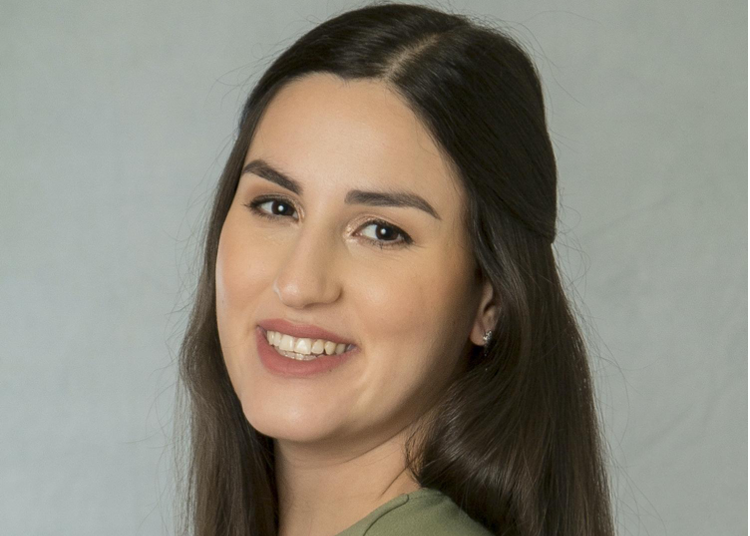
Mariana Alifa
Mariana Alifa is a Ph.D. student in environmental engineering studying topics related to air pollution and health. She conducts research on socioeconomic disparities in the monitoring and regulation of air pollution’s health effects.
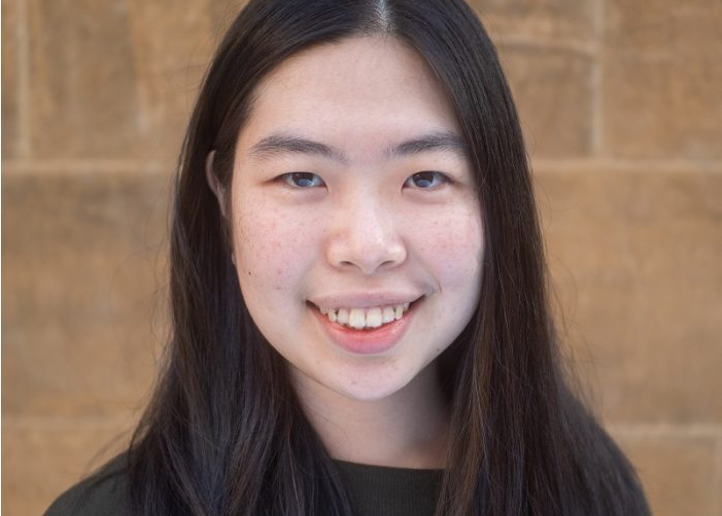
Sara Chan
Sara Chan is a Ph.D. student in philosophy whose research focuses on the metaphysical, epistemological, and ethical issues surrounding marginalization, particularly marginalization due to cognitive disability. She is particularly interested in how love can play a central role in value theory.
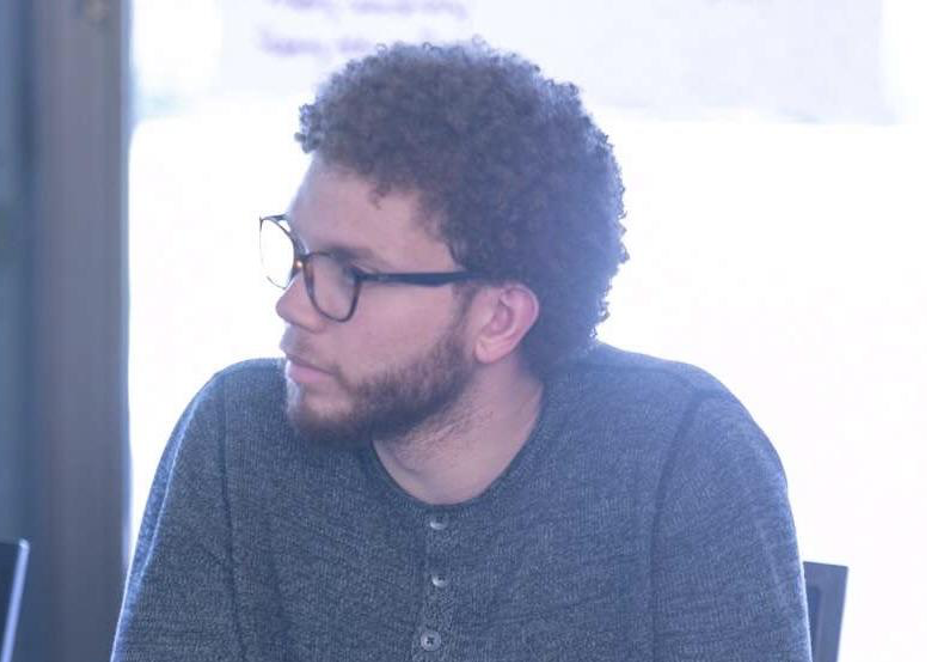
Isaih Dale
Isaih Dale is a Ph.D. candidate in English literature. He studies Black masculinity and Black violence in twentieth-century African American literature. His dissertation elucidates how Black writers use both Black physical and metaphysical violence as an aesthetic tool for imagining Black creation.
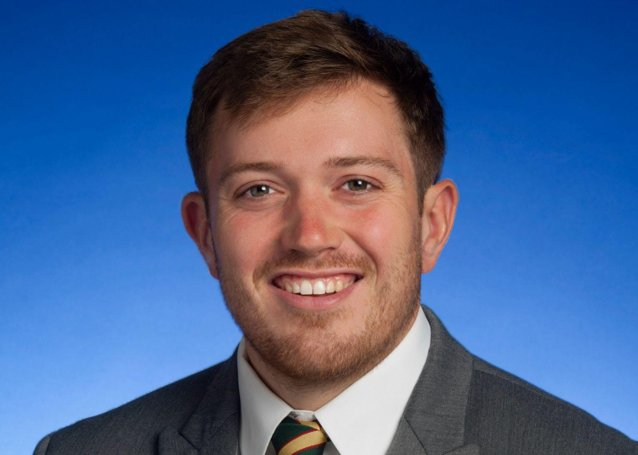
Henry Downes
Henry Downes is a Ph.D. student in economics, with research interests in labor economics and economic history. He has also worked as a research assistant with the Wilson-Sheehan Lab for Economic Opportunities, where his work focused on the impacts of homelessness prevention programs. His research focuses on the often unexpected ways in which labor power impacts the broader economy.
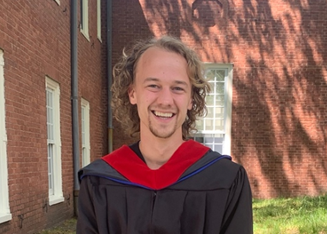
Spencer French
Spencer French is a Ph.D. student in English, where he studies late twentieth-century literature, especially literature that explores religion and justice. His research focuses on how poets of the late twentieth and early twenty-first century use and co-opt religious language in the fight for justice.
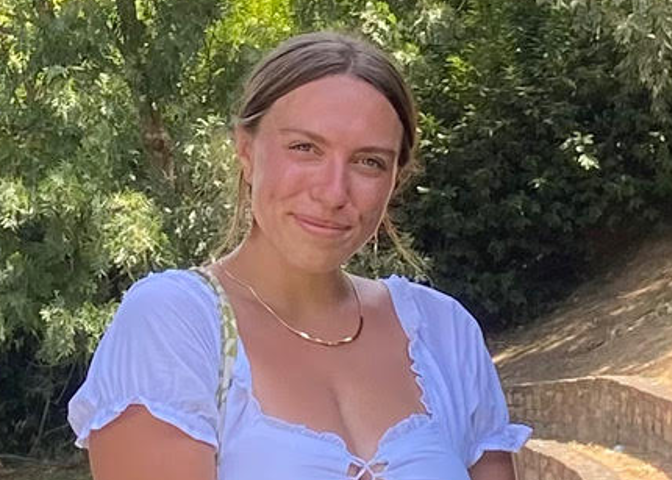
Geneva Hutchinson
Geneva Hutchinson is an MFA candidate in the Department of Art, Art History, and Design. She works in a variety of mediums, such as photography and installation. Her work in embroidery honors the work of women, especially in the southern United States, where she is from.
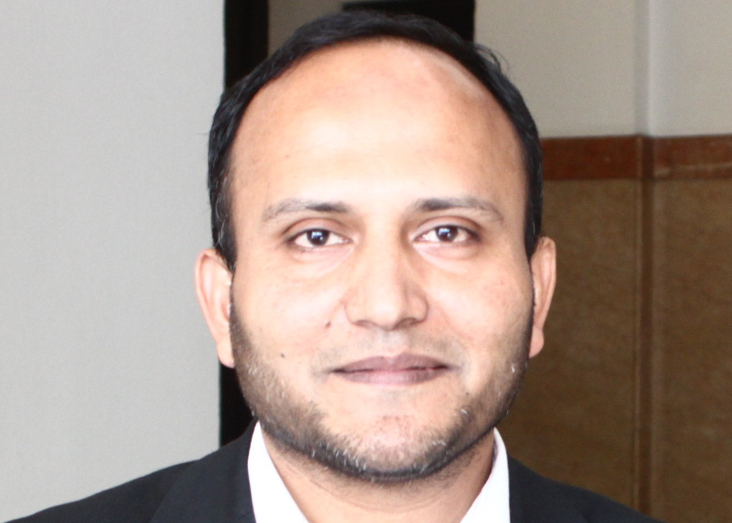
Helal Khan
Helal Khan is a Ph.D. candidate in anthropology and peace studies in the Department of Anthropology and the Kroc Institute for International Peace Studies. His doctoral research looks at the well-being of Rohingya refugees in the three Midwestern towns of Chicago, Milwaukee, and Fort Wayne, with a focus on the notions of trust and hope.
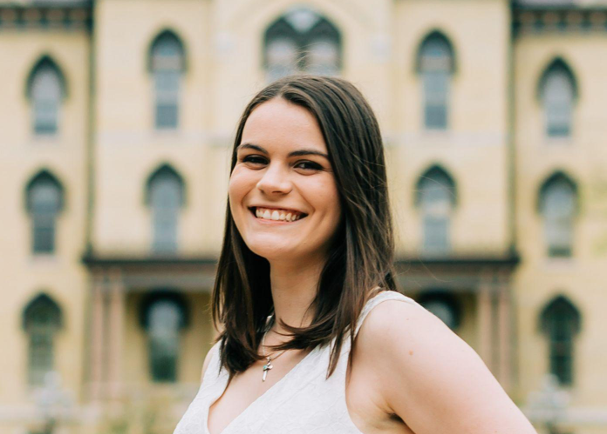
Alexandra Lesnik
Alexandra Lesnik is a law student interested in prison abolition, alternatives to incarceration, and healing from harm within community. She completed a summer internship at the Promise of Justice Initiative in New Orleans and a fall internship at the Illinois Prison Project.
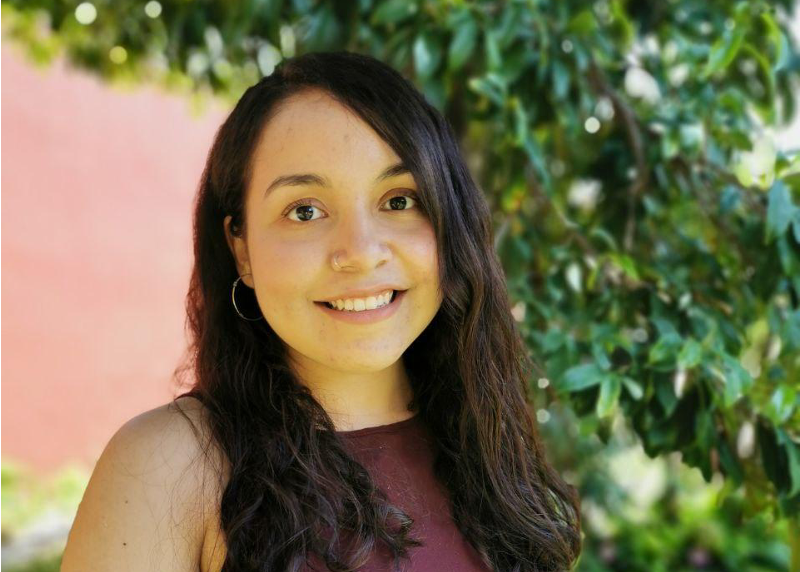
Laura López-Pérez
Laura López-Pérez is a Ph.D. student in political science. She is part of the Violence and Transitional Justice Lab at Notre Dame. Her research examines the intersection of political and criminal violence, impunity, and contentious politics in Latin America, especially Mexico.

Aidé Cuenca Narvaez
Aidé Cuenca Narvaez is a master of global affairs student at the Keough School of Global Affairs. She is committed to leveraging the grassroots work of communities that are already working for social transformation through collaborative partnership, empowerment, and mutuality. Her research seeks to understand the effects of education and environmental policies on vulnerable communities.
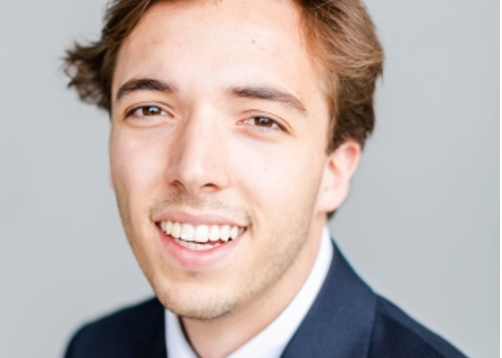
Carlos Alejandro Noyola Contreras
Carlos Alejandro Noyola Contreras is a Ph.D. student in the Department of Romance Languages and Literatures. His research explores the relationships between poetry, religion, and political independence in Latin America.
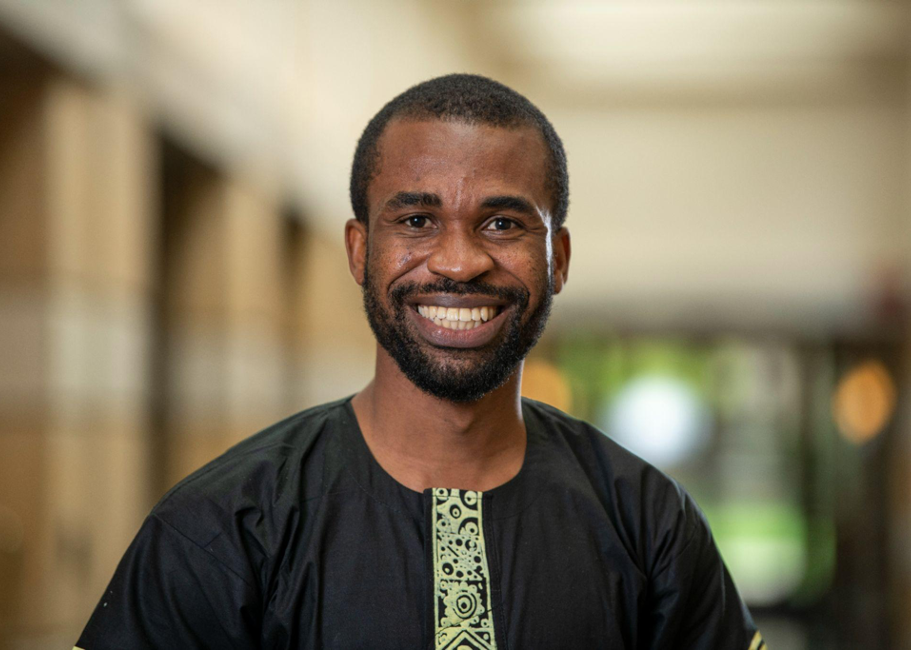
Joachim Ozonze
Joachim Ozonze is Ph.D. student in peace studies and theology at the Kroc Institute. His research looks at how conceptions of justice are shaped by unique histories and structures of violence, and explores the possibilities, gifts, and challenges of healing-justice, a concept of justice defined and driven by a journey of individual and social healing.
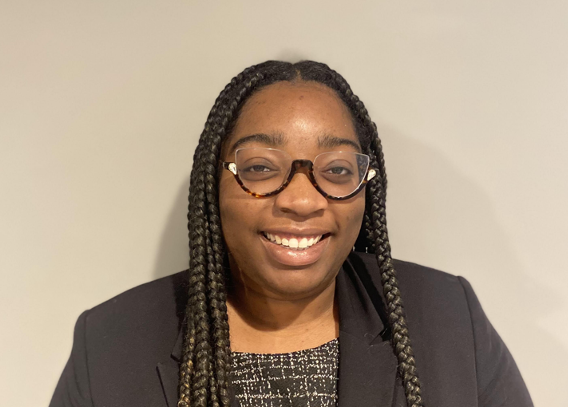
Erica Patterson
Erica Patterson is a law student with an interest in health law and energy law in both national and international settings. Her research focuses on global health law.

Tracy Porter
Tracy Porter is a Ph.D. student in the Department of Biology under the guidance of Rebecca Wingert. She works on a gene called Apol1 and its relation to kidney function with the Zebrafish as a model organism.
